
Elton John, Michael McDonald, Peter Frampton Recordings Lost or Damaged in Archive Fire
by Martin KieltyMaster recordings of Elton John material were listed among the items lost or damaged when a Universal Music Group archive building burned down in 2008, the label confirmed.
UMG was accused last year of underplaying the serious effects of the blaze, as several artists claimed they were never told that their recordings were involved.
It’s believed that some of the lost tapes contained music that was never released and can now never be recovered, while the loss of master tapes of released music means there may never be an opportunity to re-release it in upgraded quality.
In documents seen by Rolling Stone, UMG listed 19 artists whose catalogs were affected. In the case of John, the label said, “UMG is still working with the artist to determined the extent of such impact.” Also listed were a Peter Frampton “original master recording,” a Slayer “flat original master recording” and “certain original master recordings” by Nirvana, Y&T and Beck that were covered with “safety copies,” which are unlikely to retain the quality of the originals. Bryan Adams, Michael McDonald and R.E.M. were among others whose recordings were either lost or damaged.
Howard King, a lawyer acting for the class-action suit brought by a number of musicians involved, said in a statement that “Universal claimed 17,000 artists were affected by the fire when they were suing for damages. Now that they face a lawsuit by their artists, they claim a mere 19 artists were affected. This discrepancy is inexplicable.” UMG previously defended the longer list by noting that it “identified myriad potentially lost assets” that included material that wasn’t as valuable as lost masters.
Some artists previously reported that they were told of lost material as a result of the fire. In June 2019, label boss Sir Lucian Grainge told his staff to work hard on a resolution, noting that “the loss of even a single piece of archived material is heartbreaking. We owe our artists transparency. We owe them answers.”
The Best Albums From More Than 100 Classic Rock Acts
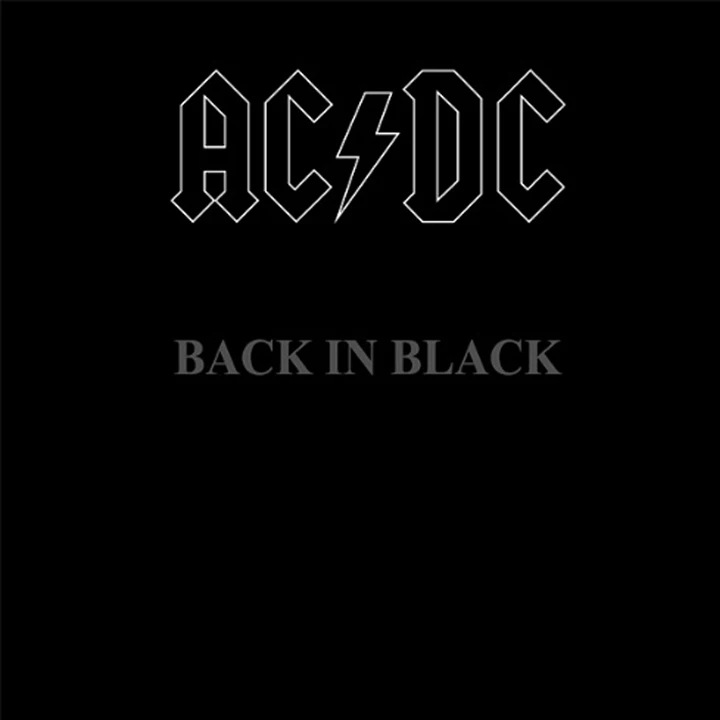
AC/DC, 'Back in Black'
Quickly recovering from the death of singer Bon Scott in early 1980, AC/DC were back at it less than half a year later with a new singer and an album that paid tribute to their late bandmate at the same time it kicked off a whole new golden era for the group.
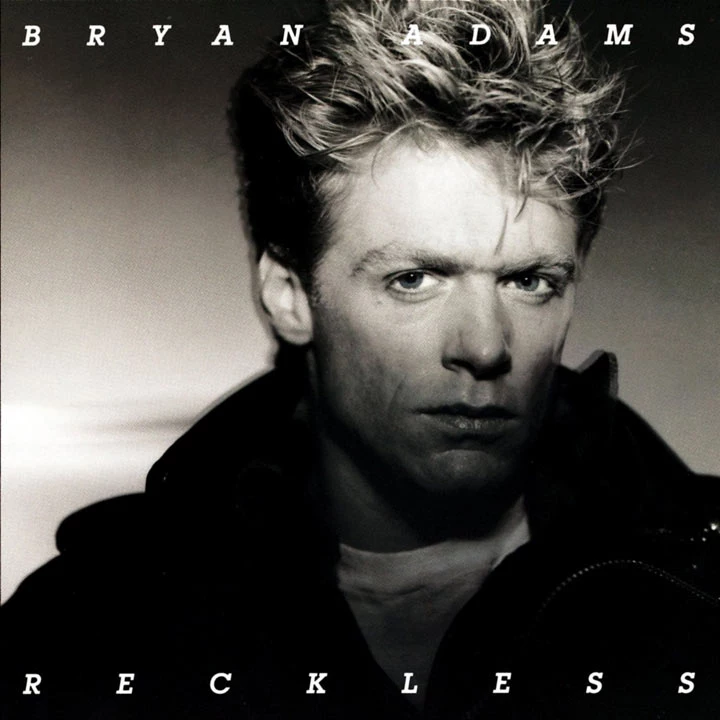
Bryan Adams, 'Reckless'
Adams was about to hit the big time with his previous album, 'Cuts Like a Knife,' but 'Reckless' pushed him over in 1984. The album hit No. 1 and spawned six hit singles. 'Reckless' pretty much set up Adams for the rest of his career, with songs cut straight from the meat-and-potatoes rock 'n' roll playbook.

Aerosmith, 'Toys in the Attic'
Aerosmith hit their stride on their third album, perfecting the nasty guitar licks and powerhouse performances they were honing onstage almost every single night. They carried this momentum to their next record, 'Rocks,' but 'Toys in the Attic' is the one that defines Aerosmith in all their sleazy rock 'n' roll glory.
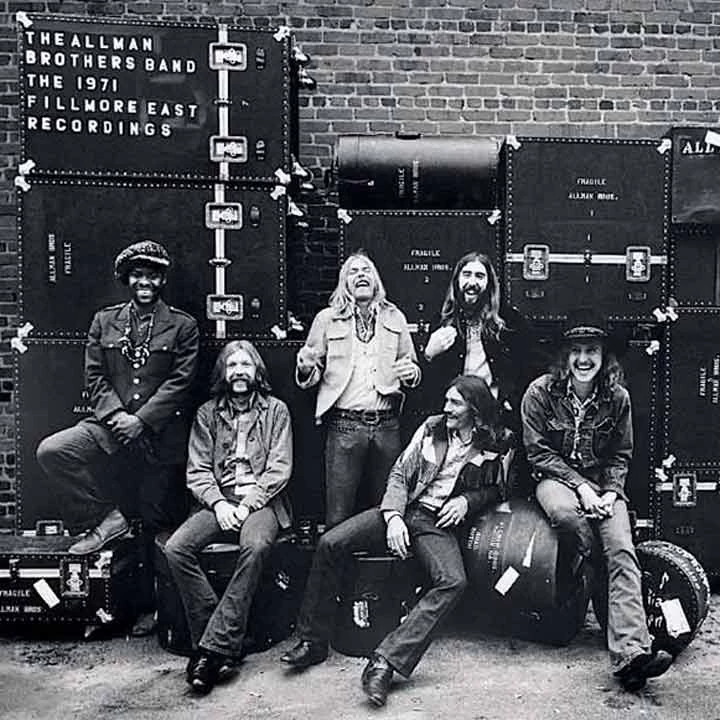
Allman Brothers Band, 'At Fillmore East'
The Allmans were at their best onstage, where they could stretch their bluesy songs to 20 minutes or more. So, it's no surprise that the excellent 'At Fillmore East' was also their breakthrough record, making them jam-band stars. Sadly, guitarist Duane Allman – the linchpin here – died in a motorcycle accident in October 1971, just three months after the album's release.

Bad Company, 'Bad Co.'
Supergroups often fall short of their potential, but the four guys who made up Bad Company – originally Free, Mott the Hoople and King Crimson vets – were still young and hungry enough to add some muscle to their debut album. Later records would get more bloated under the strain of their rock 'n' roll lifestyle, but 'Bad Co.' still sounds lean after all these years.
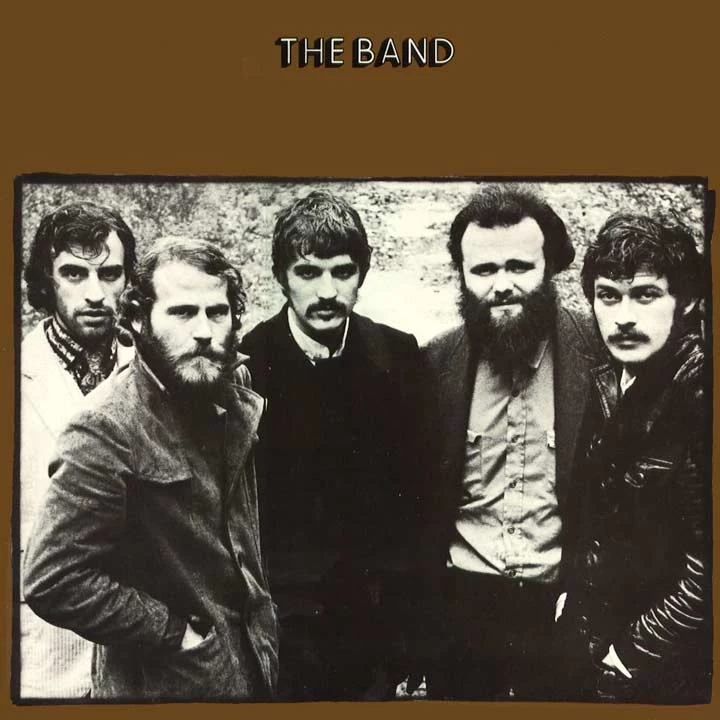
The Band, 'The Band'
The Band made their reputation on their debut album, 'Music From Big Pink,' which included a number of songs written, and a cover painted, by their old boss Bob Dylan. They go solo on their second album, a roots-soaked snapshot of U.S. history. Written and performed by four Canadians and one American, 'The Band' sounds like it's from another time. But their love of the music is genuine: There's not a false moment here.

The Beatles, 'Revolver'
Sandwiched between two milestones in rock history – 'Rubber Soul' and 'Sgt. Pepper's Lonely Hearts Club Band' – the Beatles' 1966 offering marks a major turning point in their career as well as one in the future of popular music. The studio became their playground as they twisted the songs on 'Revolver' this way and that. An influential album that still sounds revolutionary today.
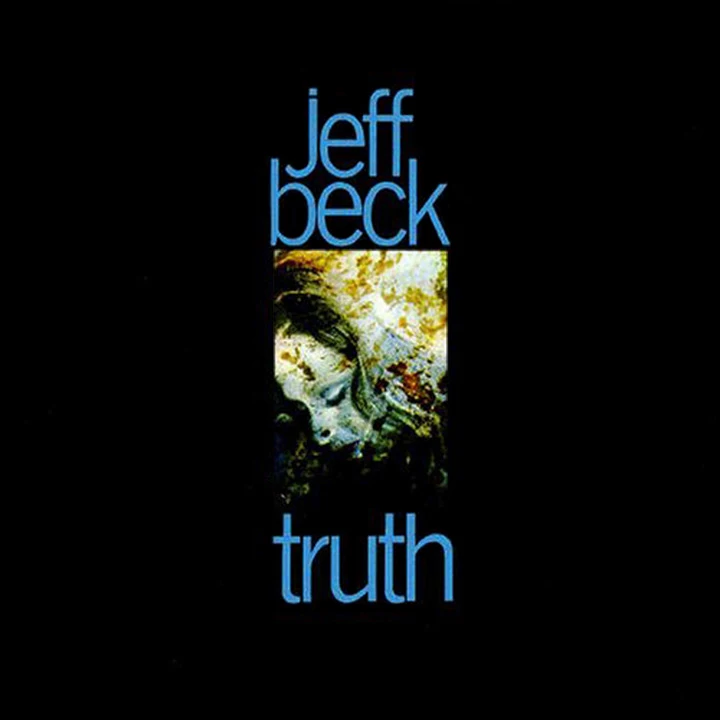
Jeff Beck, 'Truth'
Beck, fresh from the Yardbirds, released his first solo album in 1968 with help from Rod Stewart and Ronnie Wood. They weren't yet christened the Jeff Beck Group, but they were clearly a band at this point. (Other luminaries like Jimmy Page, John Paul Jones and Keith Moon also help out.) Still, most of the flash is provided by Beck, who slings his guitar into some new territory on 'Truth,' firing up old traditional and blues numbers with instrumental tricks.
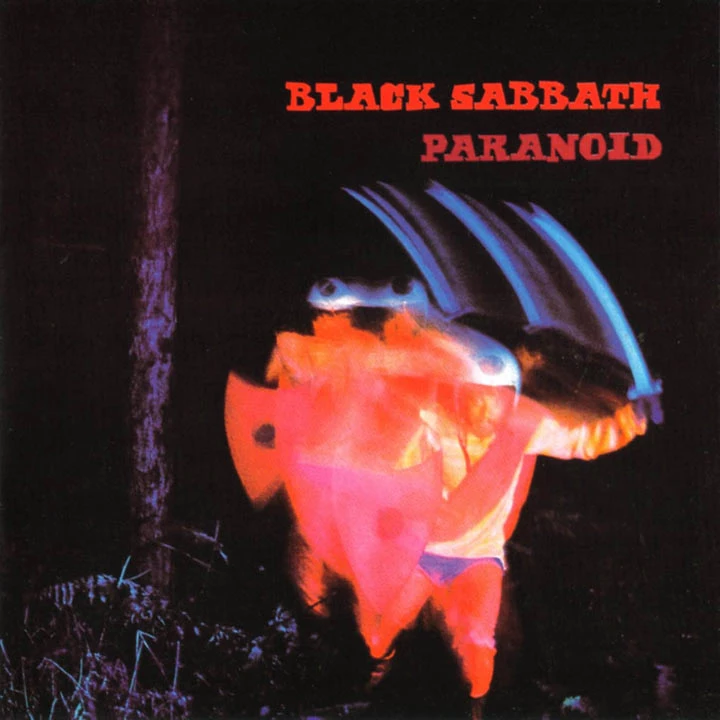
Black Sabbath, 'Paranoid'
Black Sabbath's second album helped make them stars. More important, it shaped the sound that defined their career: the heavy riffs, the doom-carrying rhythm and the feeling everything was crumbling under the feet of singer Ozzy Osbourne and his bandmates. They'd expand these themes on later albums, but 'Paranoid' sums it up best.

Blue Oyster Cult, 'Secret Treaties'
Blue Oyster Cult's third album is one of heavy rock's best mid-'70s offerings – smart, funny and a total rock 'n' roll record in all the right places. Their next studio album gave them an immortal hit in "(Don't Fear) The Reaper," but 'Secret Treaties' is the stronger LP.

Bon Jovi , 'Slippery When Wet'
Bon Jovi were slowly moving away from the big hair and '80s synths that made their first two albums so forgettable. They finally struck gold on album No. 3, a record cut from the same heartland-rock cloth shared with fellow New Jersey rocker (and hero) Bruce Springsteen. 'Slippery When Wet' isn't on the grand scale of such epics as 'Born to Run' or 'Born in the U.S.A.,' but songs like 'Livin' on a Prayer' are as close as they got to them.

Boston, 'Boston'
Boston leader Tom Scholz pretty much recorded the band's debut album in his basement. The amount of sonic detail he applied to the tracks is staggering, and to top it off, they're great rock 'n' roll songs. Scholz's perfectionism often delayed the band's other records, but this is the one that matters. It's still one of the bestselling debut LPs of all time.
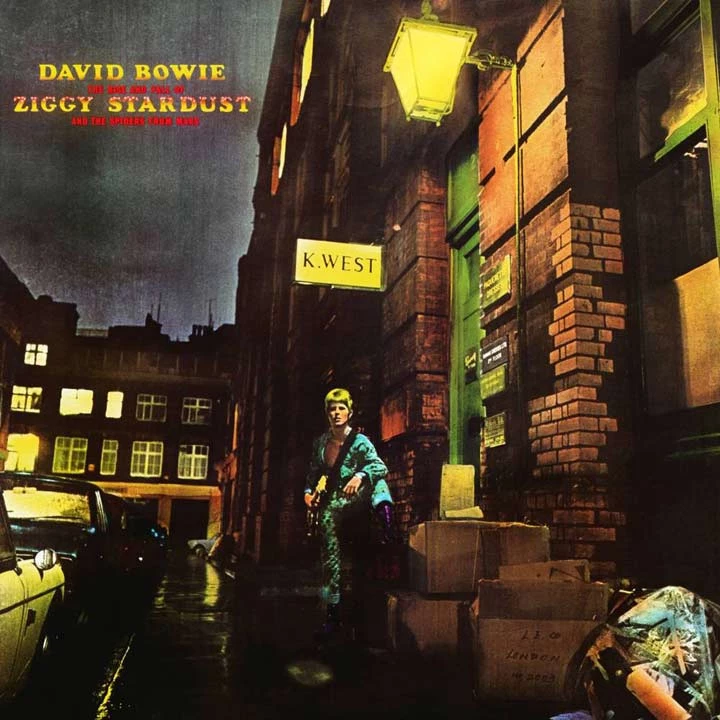
David Bowie, 'The Rise and Fall of Ziggy Stardust and the Spiders From Mars'
Bowie reinvented himself so many times throughout his long career, it's hard to nail down just one period and persona for one of music's most influential artists. But 1972's 'The Rise and Fall of Ziggy Stardust and the Spiders From Mars' is the album where it all comes together: the guts, the songs, the glam and the blast of rock 'n' roll energy that sounds like it came from another part of the galaxy.
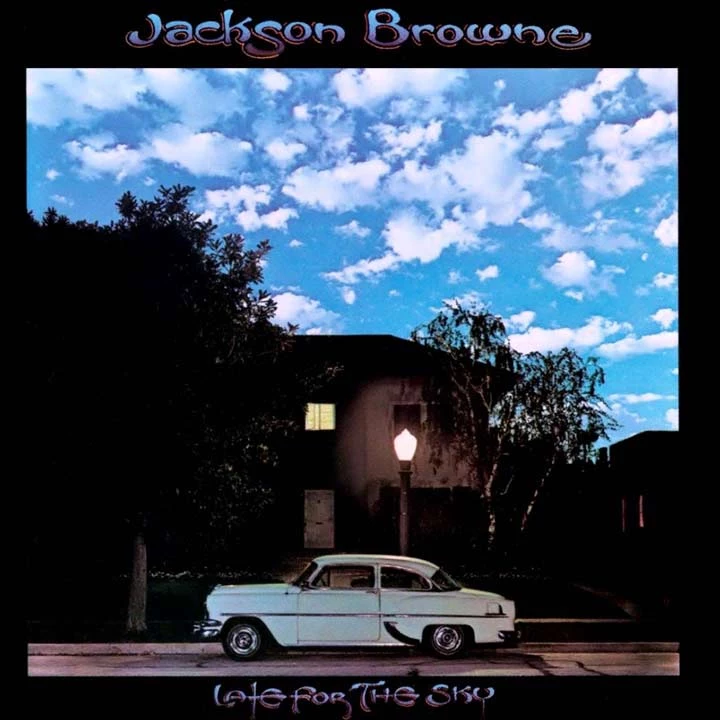
Jackson Browne, 'Late for the Sky'
To paraphrase 'A Charlie Brown Christmas,' of all the Jackson Browne albums, this is the Jackson Browne-iest. A breakup record of sorts, 'Late for the Sky' includes some of Browne's best songs – "Fountain of Sorrow," "Before the Deluge" and the title track, among them. It's also the record where Jackson Browne became Jackson Browne.

The Cars, 'The Cars'
Nobody was sure what to call the Cars when their debut album came out in 1978. Pop? New Wave? Rock 'n' roll? It was a little of all these things. The band's refusal to be labeled one way or another gives their first record a buzzing energy that other artists would attempt in the early '80s. But few of them had the great songs found here.
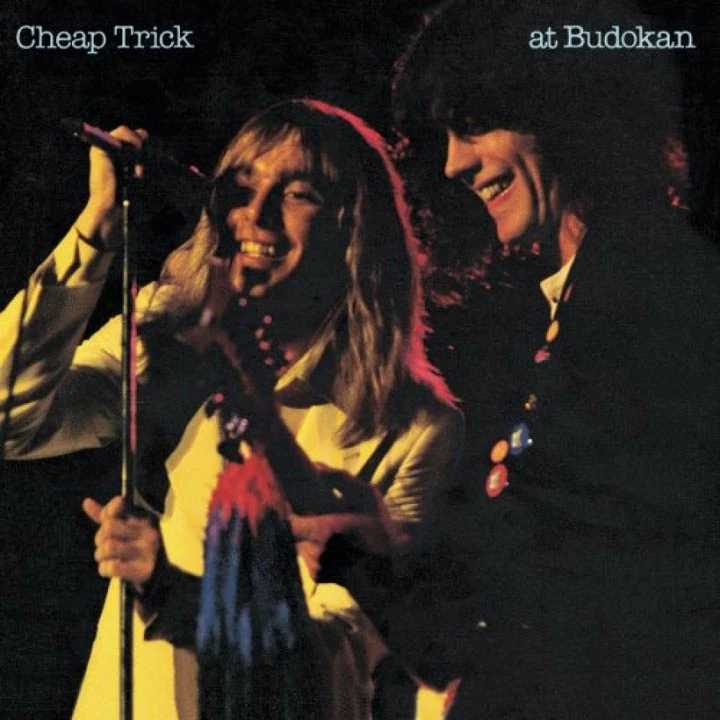
Cheap Trick, 'At Budokan'
Cheap Trick had released three studio LPs when they headed to Japan to promote the latest one. One year later, import copies of 'At Budokan' were flying off the shelves and the band became overnight stars. As with the early concert recordings of the Beatles, the audience is part of the history here, often screaming and shouting louder than anyone onstage.

Chicago, 'The Chicago Transit Authority'
Chicago's debut album was a two-record set swimming in horned-up hooks, flashy guitar solos and extended jams. Within a few years, they'd temper most of these indulgences, to the point where they became one of the '80s' most successful soft-rock groups. But they're a rock 'n' roll band here, firing off brass-kissed songs that gave pop a good name in 1969.
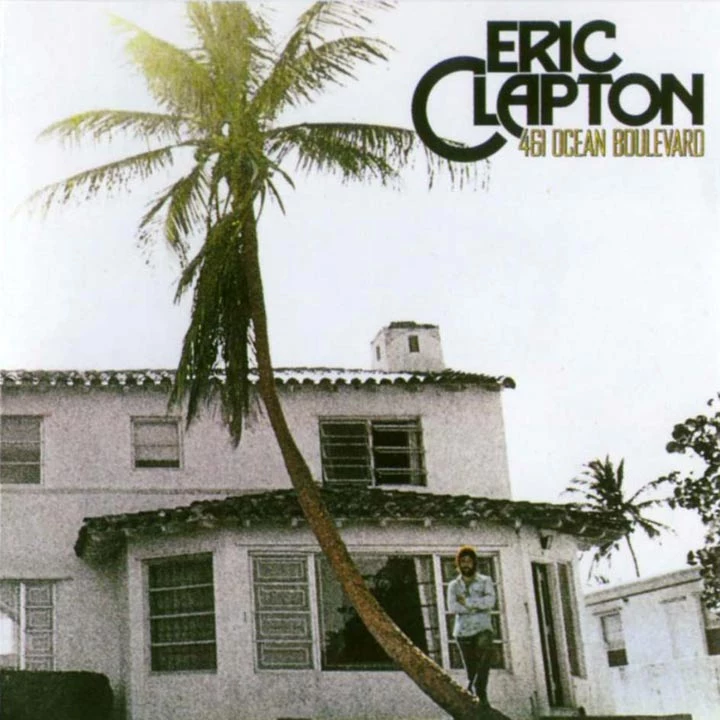
Eric Clapton, '461 Ocean Boulevard'
Clapton was getting his life back together after a crippling heroin addiction, and his second solo album throws in a bunch of different styles to keep him occupied. It's not all about guitar fireworks, either. There were blues covers, some heartfelt originals and a version of Bob Marley's "I Shot the Sheriff" that went to No. 1.

The Clash, 'London Calling'
The Clash were called the only band that mattered during their heyday, and on their third album, they sure sound like it. Not content with being the best punk band on the planet, the Clash aim for a more wide-ranging title on 'London Calling,' a double-LP classic that plays like a history of rock 'n' roll music through the years.
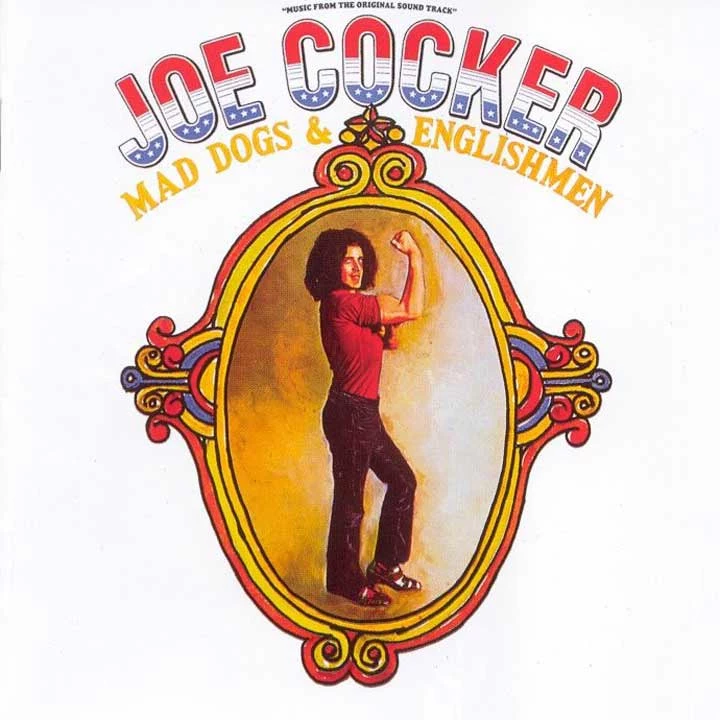
Joe Cocker, 'Mad Dogs and Englishmen'
Recorded during Cocker's two-night stand at the Fillmore East in 1970, 'Mad Dogs & Englishmen' is the ultimate rock 'n' roll road show. Band leader Leon Russell assembled a killer group to back the 25-year-old singer. It's heavy on covers of songs by Bob Dylan, Leonard Cohen and the Rolling Stones, but Cocker pretty much makes them his own.

Phil Collins, 'Face Value'
Collins' first solo album gave him the freedom to write about more personal issues outside of Genesis' prog-inclined worldview. And he used 'Face Value' as an opportunity to exorcise the hurt and heartbreak caused by his crumbling marriage. Genesis would lean more heavily toward Collins' pop tendencies in the coming years, and become superstar-huge in the process; on 'Face Value' they come together effortlessly.

Alice Cooper, 'Killer'
'Love It to Death,' released eight months earlier, pushed the Alice Cooper band into the big leagues. But their follow-up LP is their most focused. It also contained some of the group's best songs, including "Under My Wheels" and "Be My Lover." They were closing in on their first Top 10 album. 'Killer' got them there.

Cream, 'Disraeli Gears'
Cream didn't stick around long enough to get boring, but their most exciting work was on their second album, 'Disraeli Gears,' a Summer of Love freak-out that pays tribute to the past while looking keenly forward. The playing is excellent throughout, but the songs – "Strange Brew," "Sunshine of Your Love," etc. – are great too.

Credence Clearwater Revival, 'Cosmo's Factory'
Creedence Clearwater Revival released three classic albums in 1969. Their first in 1970 came after a small break for leader John Fogerty, who turned in some of his band's greatest songs here. ("Lookin' Out My Back Back Door" and "Who'll Stop the Rain" is just the tip.) Creedence would tap out soon – they released another album five months later that was the beginning of the end – but they're at the top of their game on 'Cosmo's Factory.'
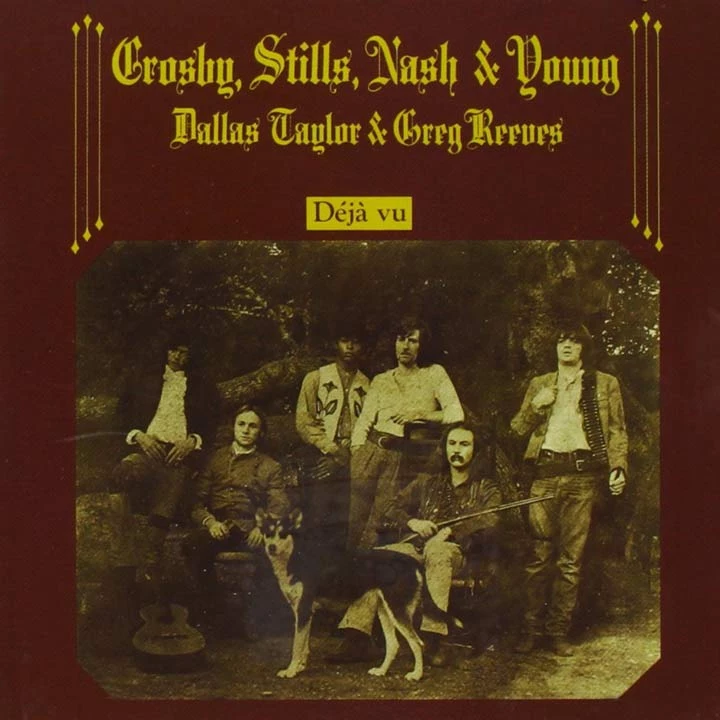
Crosby, Stills, Nash & Young, 'Deja Vu'
After a hit debut album as a trio, David Crosby, Stephen Stills and Graham Nash added Stills' old Buffalo Springfield bandmate Neil Young to the mix for an even better record. The new guy gave some much-needed fury to the group (their single-only "Ohio" remains one of rock's all-time greatest protest songs), while boosting the others' songwriting to peak levels. It would be another 18 years before the combustible quartet made another album together.

Deep Purple, 'Machine Head'
After four years, five albums and some lineup changes, Deep Purple finally hit their stride on 'Machine Head.' "Smoke on the Water" instantly made the Guitar Riff Hall of Fame, and the remainder of the record – especially the opening "Highway Star" – made the band one of the biggest on the planet. More records and more lineup changes over the years haven't dulled the impact of 'Machine Head.'
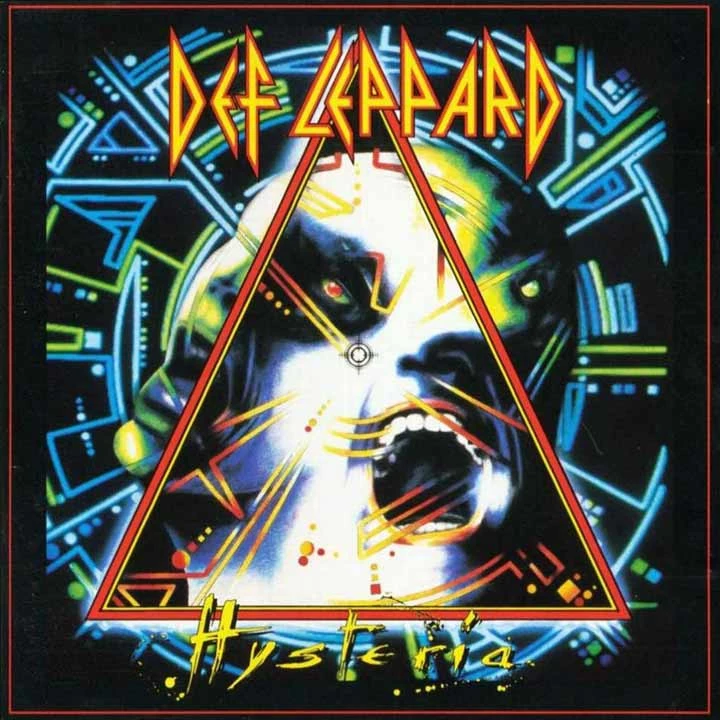
Def Leppard, 'Hysteria'
Def Leppard followed a long period of ups (1983's 'Pyromania' made them stars) and downs (drummer Rick Allen lost an arm in a car accident) with a stylish record that incorporated some glittery pop into their hard-rock mix. The result was one of the '80s' biggest, and biggest-sounding, albums – an event record that was the equivalent of a summer blockbuster movie. It still shines.
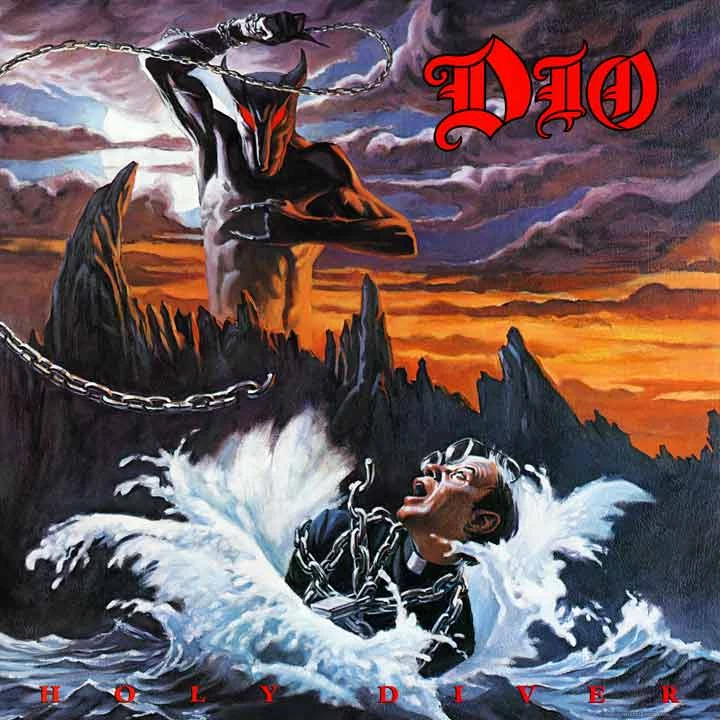
Dio, 'Holy Diver'
The debut album by Ronnie James Dio's self-named band has all the elements of a metal classic: kick-ass cover art, heights-scaling vocals and songs that stand the test of time ("Rainbow in the Dark" proved they could pack the hooks too). A formative record in the history of '80s metal and everything to come.
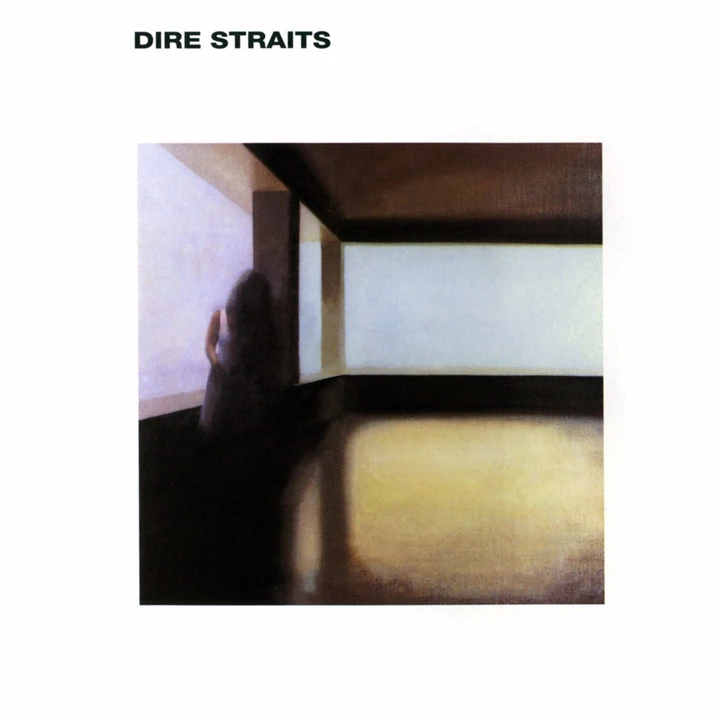
Dire Straits, 'Dire Straits'
Dire Straits would make more intricate and bigger albums during their short career, but their self-titled debut from 1978 doesn't overthink things. Mark Knopfler's guitar skills were already well developed, and he applies them to some of the band's most understated songs.
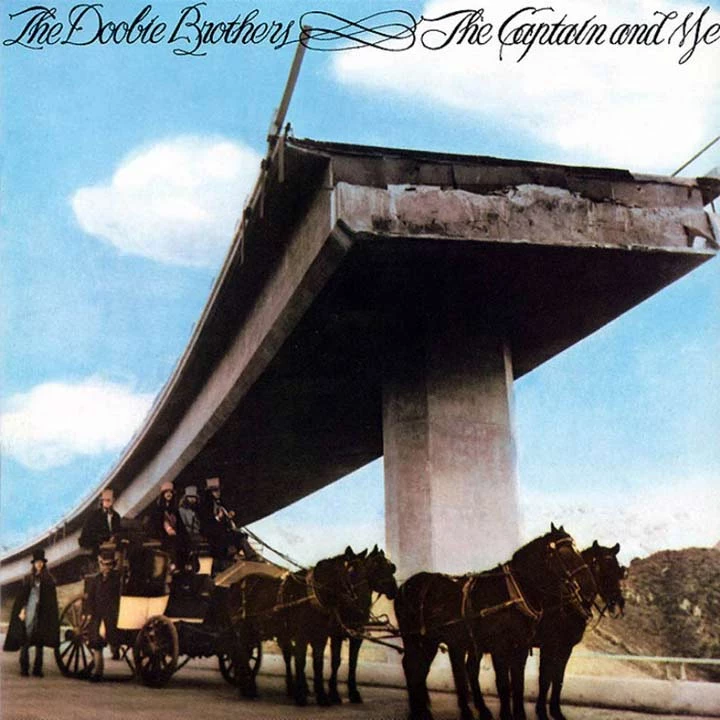
The Doobie Brothers, 'The Captain and Me'
Before Michael McDonald was recruited and made the Doobie Brothers one of the most successful pop bands of the late '70s, these California rockers were a sturdy groove machine. Their third album finds them at their best. The songs here – including "Long Train Runnin'" and "China Grove" – are among the very best too.

The Doors, 'The Doors'
The Doors' debut album ushered in the Summer of Love a few months ahead of schedule. But they rarely played by the rules. Boasting a keyboard player with a flair for the dramatic, a singer who loved to get all melodramatic and an arsenal of songs that upgraded the blues for the psychedelic generation, the Doors became one of the era's most popular bands. Their debut album is where it all came together.

Bob Dylan, 'Blonde on Blonde'
There are few periods in rock 'n' roll history as amazing as the 14-month span in which Dylan released three of music's all-time greatest albums, 'Bringing It All Back Home, 'Highway 61 Revisited' and the two-LP masterpiece that capped them. 'Blonde on Blonde' is the sound of Dylan settling into his legend, one timeless song at a time.

Eagles, 'Hotel California'
The Eagles were on the verge of becoming one of the biggest bands in the world when they released their dark look at the Hollywood lifestyle that would soon take its toll on them. 'Hotel California' is part cautionary tale, part pedal-to-the-metal rock 'n' roll excess. The group's country roots barely show here, but their music has never been more focused.

Electric Light Orchestra, 'Out of the Blue'
Jeff Lynne went all out on Electric Light Orchestra's seventh album, delivering a two-LP classic stuffed with massive-sounding songs (see "Turn to Stone," "Sweet Talkin' Woman" and "Mr. Blue Sky"). ELO were big before 'Out of the Blue' was released in 1977. They got even bigger afterward.

Emerson, Lake and Palmer, 'Tarkus'
Like all Emerson, Lake and Palmer albums, their second is a massive prog undertaking. Side One is made up of the 20-minute title track, divided into seven parts ... of course. Side Two is a collection of shorter songs that are among the trio's tightest.

Faces, 'A Nod Is as Good as a Wink ... to a Blind Horse'
Faces' second album from 1971, and third overall, came in the middle of a whirlwind year for singer Rod Stewart. He just scored his first No. 1 album ('Every Picture Tells a Story') and single ('Maggie May'), and that momentum made 'A Nod Is as Good as a Wink ... ' a hit too. Loose, bluesy and boozy, rock 'n' roll doesn't get more natural than this.
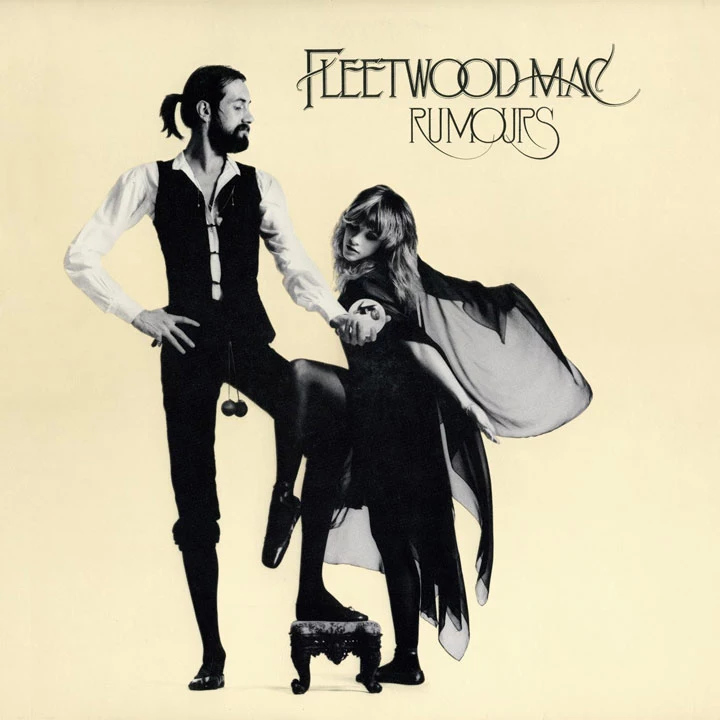
Fleetwood Mac, 'Rumours'
Fleetwood Mac had been kicking around for years with various members when two singer-songwriters from California joined the British group. Their first album together, 1975's 'Fleetwood Mac,' was a huge hit. Its 1977 follow-up, 'Rumours,' was even bigger. The band's two couples were both having relationship problems at the time, which fueled the excellent collection of songs. One of the greatest breakup albums ever made.
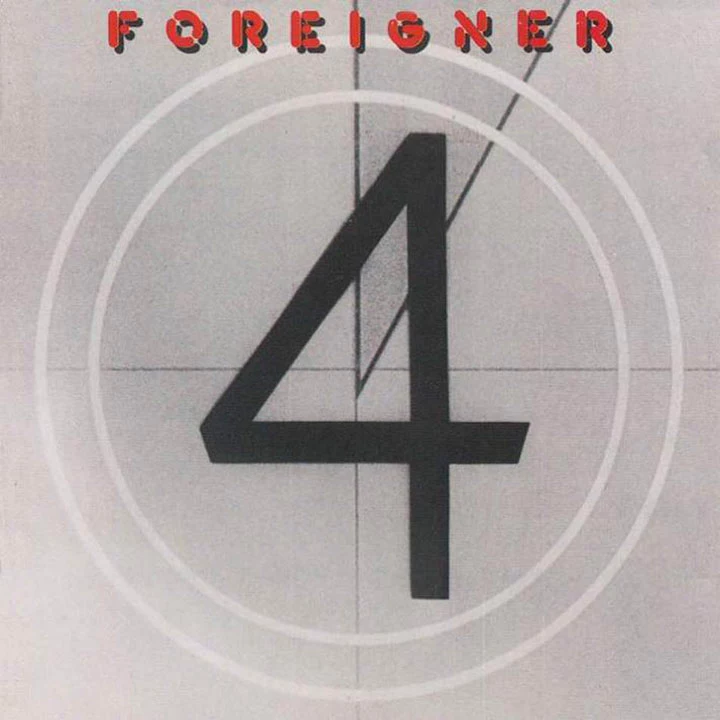
Foreigner, '4'
Foreigner's fourth album took them to a whole new level. They had hit albums and Top 40 singles before, but '4' branched them out into some new territory, including the synths and saxes that drive the record's best songs. '4' was packed with hits. All these years later, it's easy to hear why it was so popular.
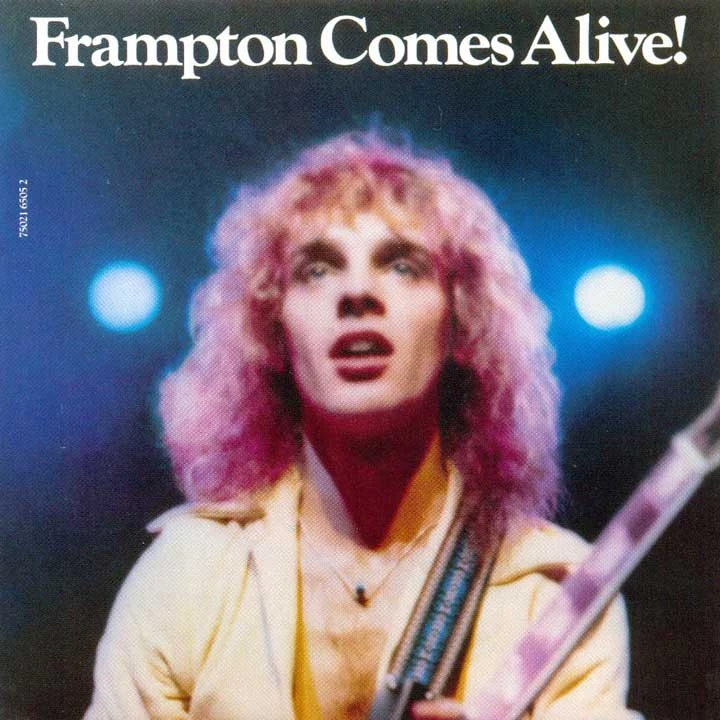
Peter Frampton, 'Frampton Comes Alive!'
Frampton had been kicking around for several years (first as a member of Humble Pie, then as a struggling solo artist) before his double live LP made him a star in 1976. Like a few other albums on out list, 'Frampton Comes Alive!' captures the artist in his element – onstage and surrounded by adoring fans. He'd end the decade near the sidelines again, but for a brief period in the mid '70s, nobody was bigger than Frampton and his talk box.

Peter Gabriel, 'So'
Gabriel had carved out a pretty good solo career as a politically conscious art-rocker after he left Genesis, but on his fifth album he aims for something bigger: pop star. And he became one, thanks to 'So''s canny mix of hooky songs and passionate singing. It didn't hurt that "Sledgehammer" was all over MTV in 1986, either.

Genesis, 'The Lamb Lies Down on Broadway'
Genesis had been building toward their sixth album since their formation, so it's no surprise that their sprawling double-LP concept record is their masterpiece. Like most prog epics, it doesn't make a whole lot of sense storywise, but the music and performances are among the genre's all-time best. Singer Peter Gabriel left after its release, and the rest of the band eventually headed in a new, more lucrative direction.
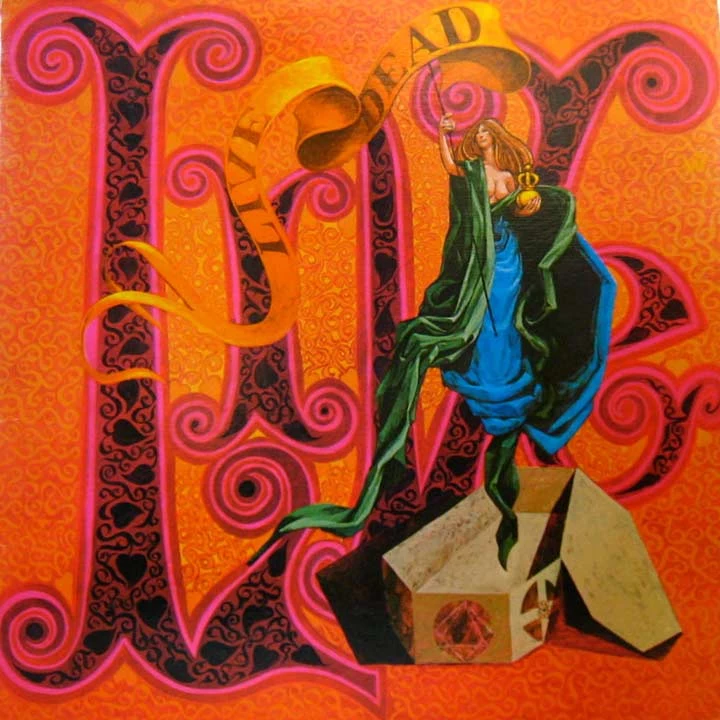
Grateful Dead, 'Live/Dead'
The Grateful Dead were at their best onstage, and they were never better than on their first live album from 1969. 'Live/Dead' captures the Deadhead phenomenon in its infancy, as the band begins to play around with the conventions of its songs and the audience dutifully follows along. It's an exciting trip, culled from the group's most fertile period: All of their classic albums were released within two years of 'Live/Dead.'

Guns N' Roses, 'Appetite for Destruction'
Rock 'n' roll needed a kick in the ass in the late '80s, when Guns N' Roses' debut album appeared. It took a little while for it to catch on, but once it did, the band upended everything you knew about mid-'80s rock. Like the Rolling Stones and other great bands before them, they were sleazy and controversial. And like those classic bands, they had the songs to back up that reputation.
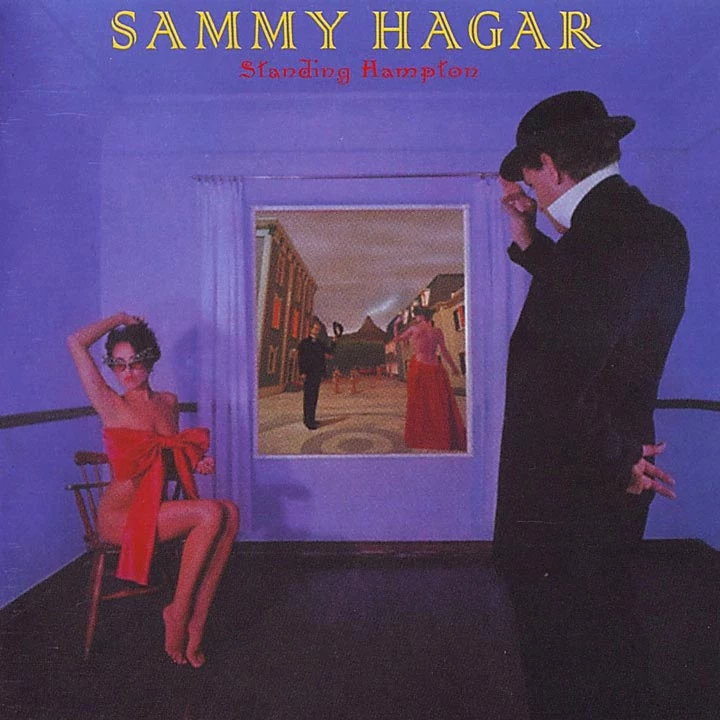
Sammy Hagar, 'Standing Hampton'
Hagar's fifth solo album was a radio hit, and it also gave the singer his biggest taste of the pop charts at the time. In 1982, Hagar was still a few years away from joining Van Halen. This solo record got him ready for his close-up.

George Harrison, 'All Things Must Pass'
George Harrison was stifled in the Beatles, given just a song or two per album. (Things like that tend to happen when your bandmates are John Lennon and Paul McCartney.) So, he had a lot to say on his first proper solo album in 1970 – so much, in fact, that 'All Things Must Pass' was originally a three-record set. Stuffed with friends and songs, the album is the cornerstone of a remarkable career.

Heart, 'Little Queen'
Heart's second album began to define their sound. The Zeppelin drive is in full force here, on songs like "Barracuda" and "Kick It Out." But they also prepped for their '80s pop career by showing a sensitive side on some of the LP's deeper cuts.
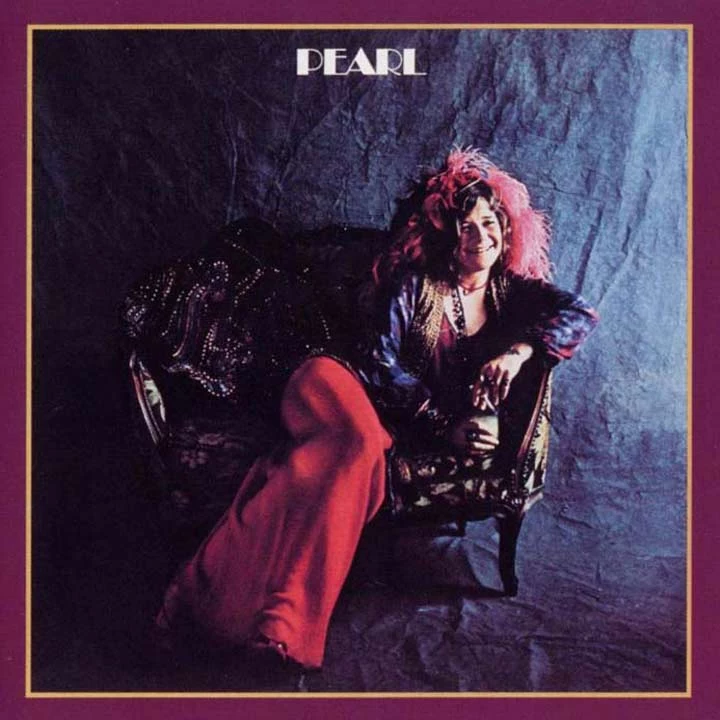
Janis Joplin, 'Pearl'
Joplin died before work was completed on her second solo album, but 'Pearl' is the most definitive portrait of one of the era's most colorful personalities. Joplin grabbed from the worlds of country, pop, R&B and blues music to fill out 'Pearl.' In the end, it's all her.
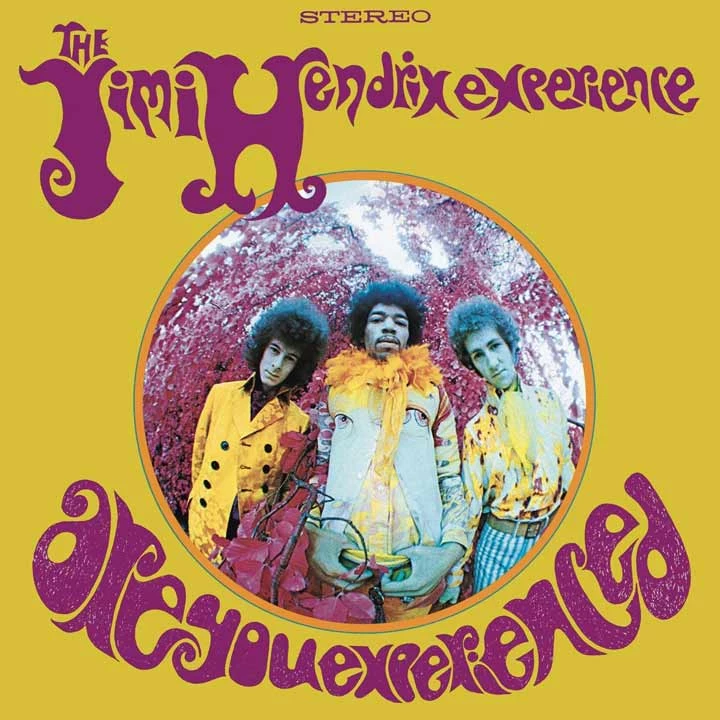
Jimi Hendrix, 'Are You Experienced'
Hendrix would go deeper on his two other albums with the Experience, but there's a rumbling hunger on his debut record that sounds like he has everything to prove and nothing to lose. Which was pretty much the case. The songs here are all excellent, but 'Are You Experienced' also captured the sound of 1967 in 40 dazzling minutes. The guitar work got him noticed, but his modern take on the blues is something special too.
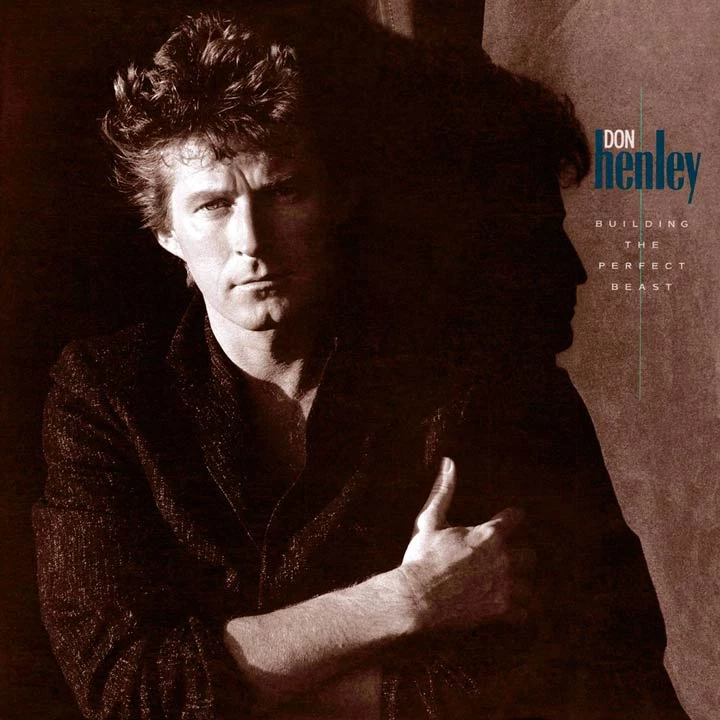
Don Henley, 'Building the Perfect Beast'
Henley was the Eagles' most outspoken political voice. He was also their best singer and songwriter. His second solo album, from 1984, almost atones for the Eagles' late-career sins (his next LP, 1989's 'The End of the Innocence,' is equally as good) by reinventing Henley as a socially conscious solo artist who wasn't afraid to take things to the edge once in a while. The album's big single, "The Boys of Summer," remains one of rock's most wistful kiss-offs to the past.
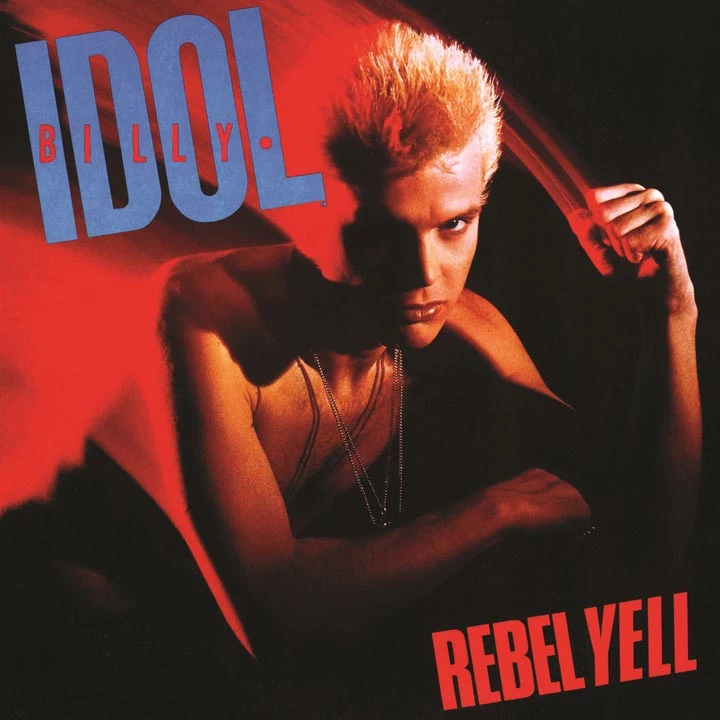
Billy Idol, 'Rebel Yell'
Idol found his voice on his second album, pushing away from the pop-punk he played on his first solo record and with his band Generation X. Guitarist Steve Stevens is a big part of this. He follows Idol every step of the way, turning in melodic solos that split the difference between metal and New Wave.
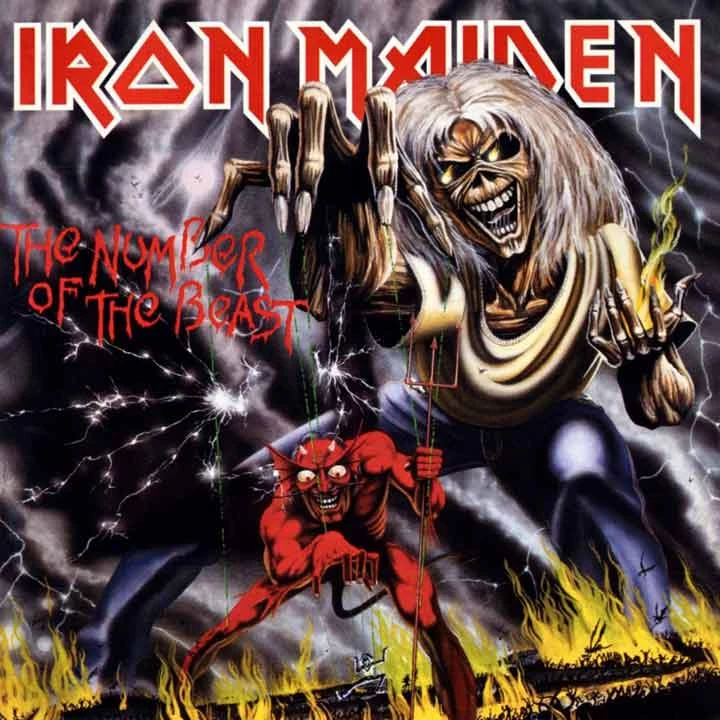
Iron Maiden, 'The Number of the Beast'
Everything was pretty much in place for Iron Maiden's third album. The songs are big without going over the top; the playing is exemplary, but never show-offy. The band would shape its strengths and adapt them to bigger songs later, but 'The Number of the Beast' finds '80s metal on the cusp of something big. Iron Maiden pushed it over with this record.
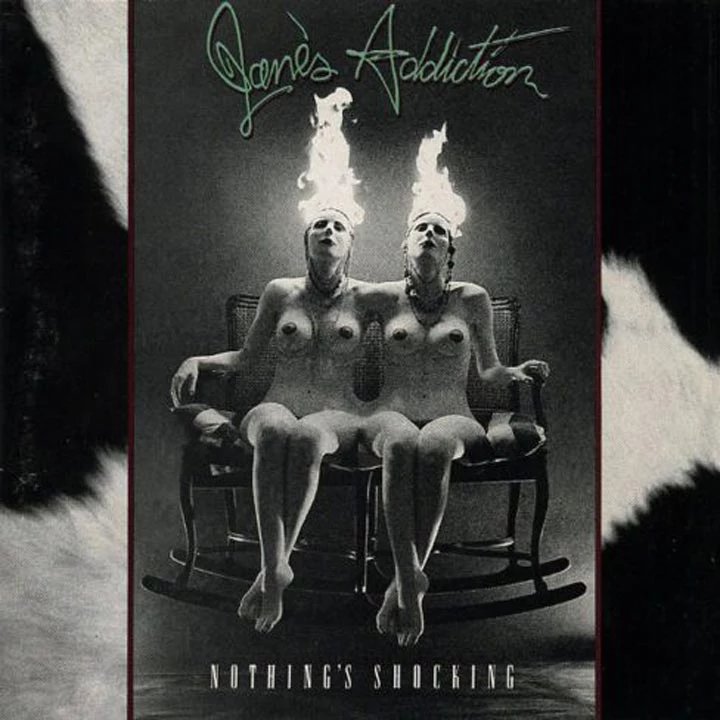
Jane's Addiction, 'Nothing's Shocking'
Jane's Addiction were stuck somewhere between old-school rock 'n' roll classicists (they loved guitar heroics) and art-rock weirdos (college radio wasn't sure what to do with them when their debut album came out in 1988). 'Nothing's Shocking' sounds like two eras colliding, and it's a glorious mess of noise, hooks and late-'80s freak out.

Jefferson Airplane, 'Surrealistic Pillow'
With a new singer, Grace Slick, who also happened to bring a pair of classic songs with her ("Somebody to Love" and "White Rabbit"), Jefferson Airplane's second album in part defined the Summer of Love. The band was one of the best in San Francisco, whose scene helped shape an entire era. 'Surrealistic Pillow,' is a pinnacle of that period.
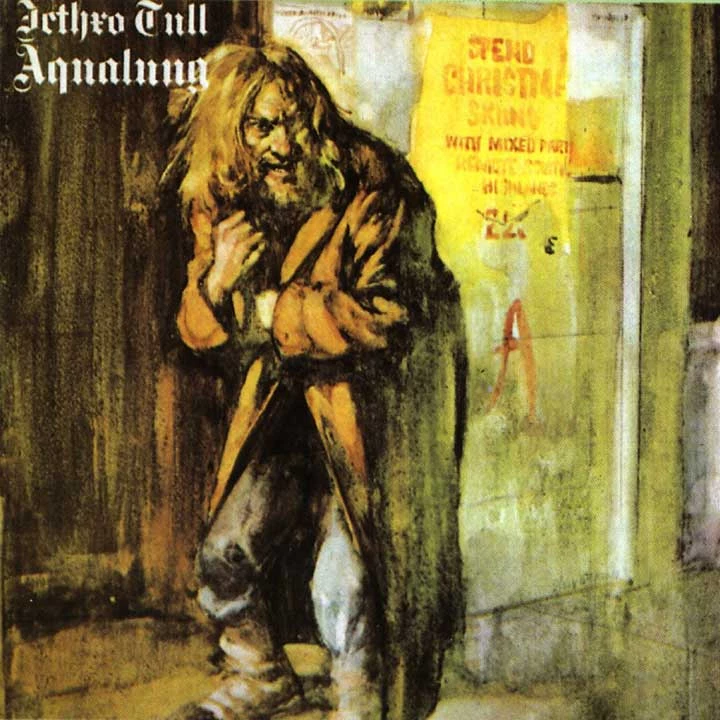
Jethro Tull, 'Aqualung'
Ian Anderson insists Jethro Tull's 1971 LP isn't a concept album, but with thematic ties among its 11 songs, who's he kidding? Either way, 'Aqualung' stands as the band's masterpiece, a near-perfect melding of the folk and prog influences that shaped their long career. Flute-driven rock 'n' roll at its best.

Billy Joel, 'The Stranger'
Billy Joel had been trying to make it on both coasts before he finally scored his first huge hit with his fifth album. Focused and pristine production by Phil Ramone pushed the New York singer-songwriter to try some new things, and the scope of 'The Stranger' – old-school ballads to sweeping rock storytelling – encouraged Joel to move outside of his comfort zone. A breakthrough record that still ranks among the best of its type.

Elton John, 'Goodbye Yellow Brick Road'
Elton John was on his way to becoming the biggest pop star in the world when he made 'Goodbye Yellow Brick Road' in 1973. He had so many great ideas that the project ballooned into a double LP of ballads, rockers, nostalgia trips and pop masterpieces. It's a personal look at John and songwriting partner Bernie Taupin's collective lives, but they make a universal classic out of it.

Journey, 'Escape'
It took Journey seven albums to finally hit on the formula that made them stars. There's some rock 'n' roll on 'Escape'; there are some slow-building love songs too. There's also "Don't Stop Believin'," one of the early '80s' biggest hits that just keeps getting better through the decades.

Judas Priest, 'British Steel'
Judas Priest sharpened their sound on their sixth album, not quite hitting the mainstream but getting close enough to it to make all the difference. 'British Steel' came at the start of the U.K.'s blooming heavy metal scene and, in a way, set the template for so many records and bands to come. Priest are always at their best when they draw inspiration from this record.

Kansas, 'Leftoverture'
Kansas reined in some of their most bombastic tendencies on their fourth album, and they were rewarded with their first huge hit. "Carry On Wayward Son" set them up for life, but the closing "Magnum Opus," eight minutes of pure prog, showed they hadn't forgotten their past.

King Crimson, 'In the Court of the Crimson King'
King Crimson's debut album helped set prog-rock's template in 1969. At times, it can seem overstuffed – the 12-minute, two-part "Moonchild" paved the way for other self-serious epics to come. But it rocks too. "21st Century Schizoid Man" is primal rock 'n' roll, and the closing "The Court of the Crimson King" is grand, sweeping perfection.
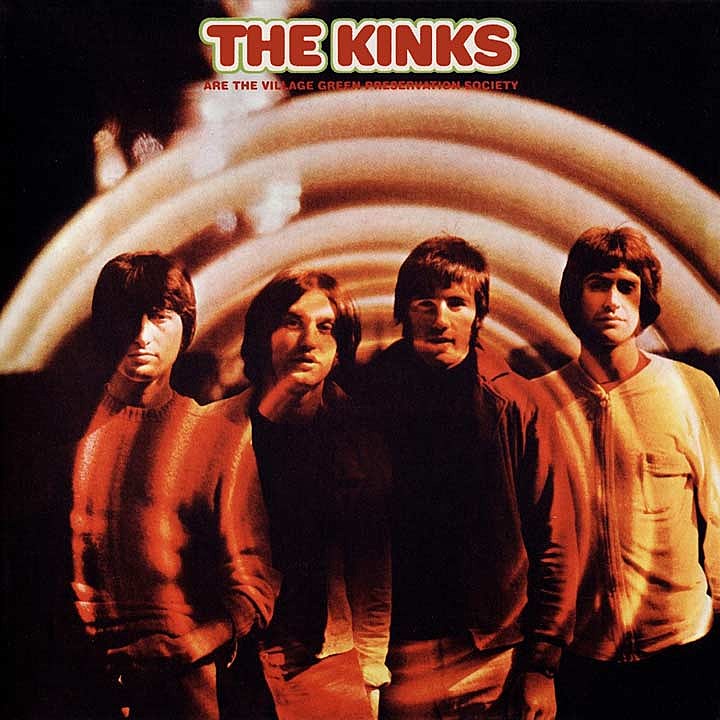
The Kinks, 'The Kinks Are the Village Green Preservation Society'
Frontman Ray Davies had tired of the riff-driven guitar rock he helped pioneer with the Kinks by the time of their sixth album. He steered into his more pastoral style of songwriting on 'Something Else,' the group's previous record, but he dives head first into Victorian dandy music on 'The Kinks Are the Village Green Preservation Society.' The LP bombed commercially, but Davies was never better as a songwriter. He'd spend the next several years expanding and refining this album's themes.
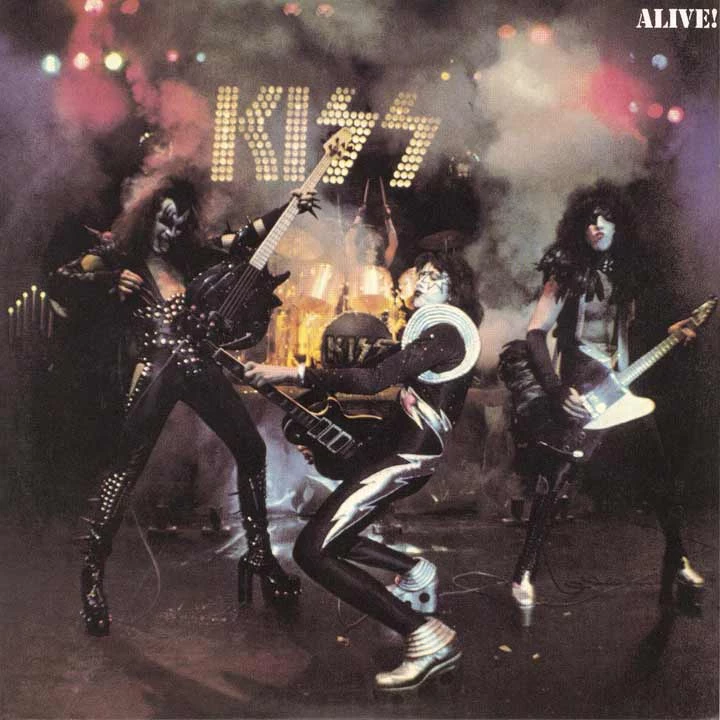
Kiss, 'Alive!'
Kiss were inching toward their breakthrough moment when their epic 'Alive!' album came out in 1975. It made them stars, even if the "live" part of the record isn't always accurate (the band re-recorded sections in the studio). Either way, the results were stunning: a concert experience that drove millions of fans into the burgeoning Kiss Army.

Led Zeppelin, 'Led Zeppelin IV'
After a mostly acoustic third album, Led Zeppelin got back to what they did best on their fourth record. There's lots of prime rock 'n' roll seeped in the blues here, but they also carried over a few of the unplugged lessons they learned on 'III.' The result is the band's most focused and flawless album, a true masterpiece of power and songcraft.

John Lennon, 'John Lennon/Plastic Ono Band'
Like his former Beatles bandmates, Lennon's earlier solo records were experimental LPs that broke free from his past. 'John Lennon/Plastic Ono Band' breaks free in another way, applying primal-scream therapy to Lennon's most personal collection of songs. He muses on family, religion, politics and, most of all, the Beatles on his best album.
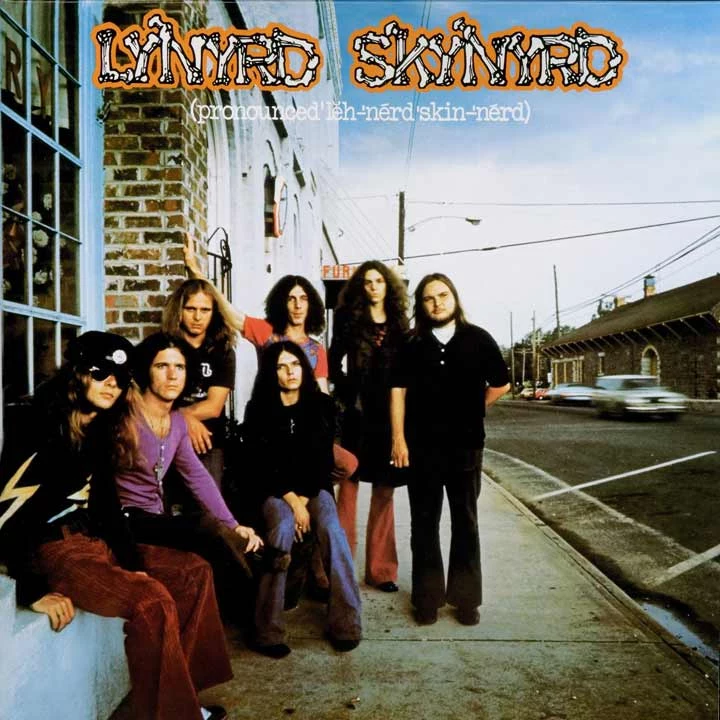
Lynyrd Skynyrd, '(Pronounced Leh-Nerd Skin-Nerd)'
Skynyrd would have bigger hits and develop musically over the next few years, but their 1973 debut remains their landmark record: Southern rock with an ounce of vulnerability to go with all that swagger. Some of their best songs are on '(Pronounced Leh-Nerd Skin-Nerd),' including "Free Bird" and "Gimme Three Steps" – and they've remained concert staples even after a tragic plane crash ended the original lineup in 1977.
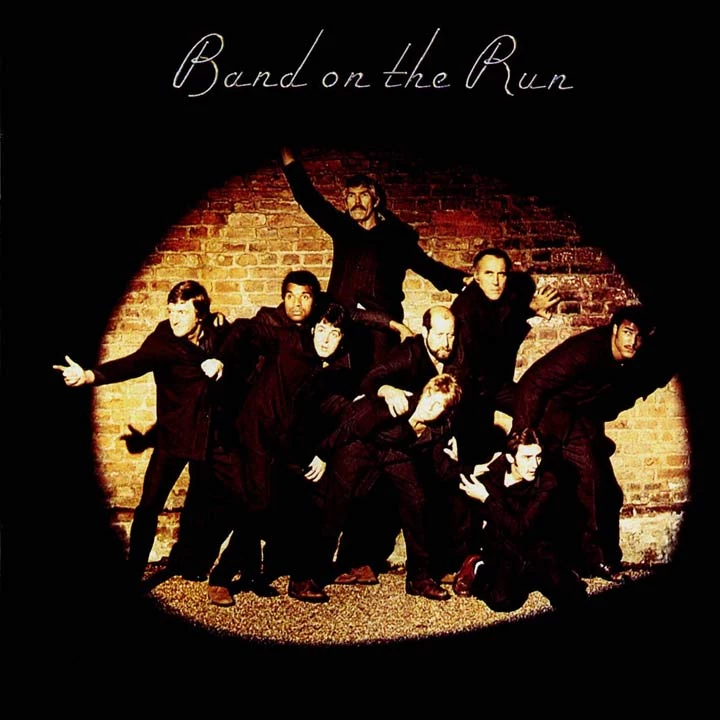
Paul McCartney, 'Band on the Run'
Post-Beatles, Paul McCartney played around in the studio as a solo artist, and as one-half of a working team with wife Linda. His third album with Wings is his most direct record since the Beatles, a rock 'n' roll extravaganza that featured his best music since he broke up the world's biggest group nearly four years earlier.

Meat Loaf, 'Bat Out of Hell'
Meat Loaf was a struggling singer and actor (he appeared in 'The Rocky Horror Picture Show') when he hooked up with songwriter Jim Steinman, producer Todd Rundgren and a backing group that included members of the E Street Band. The result was one the '70s' most epic and most popular albums, a song cycle about love, sacrifices for love and going all the way to prove you love somebody.

John Mellencamp, 'Scarecrow'
John Cougar Mellencamp had been fighting for his independence (and his real last name) since the late '70s, and by 1985's 'Scarecrow' he finally made his definitive statement – an album sowed in the rich Americana soil of his heartland. Arriving in the middle of Reagan's rule, the social frustrations were spot-on too.
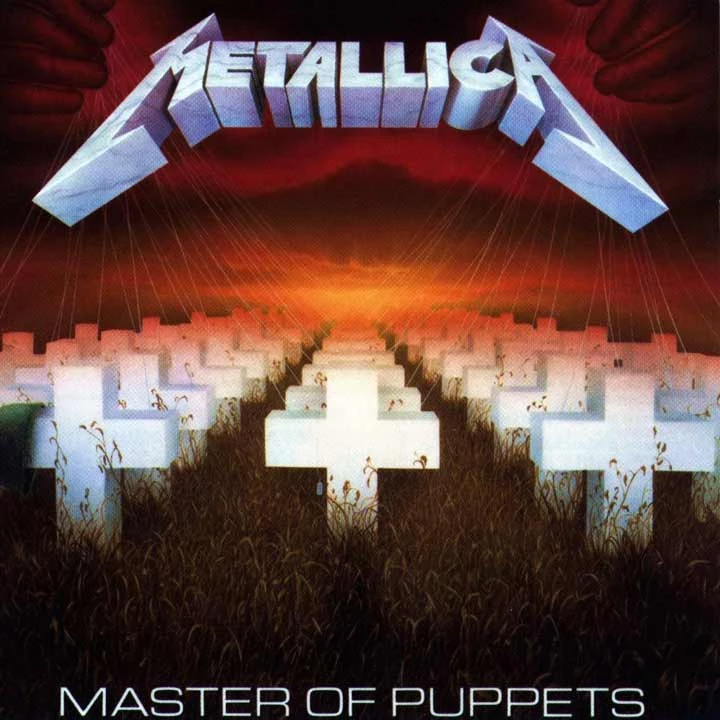
Metallica, 'Master of Puppets'
The Black Album broke Metallica to the mainstream five years later, but 1986's 'Master of Puppets' is where they became the kings of thrash metal. The songs' epic lengths are justified here, as the band slowly builds each track to its brutal conclusion. 'Master of Puppets' influenced tons of like-minded artists over the years, including Metallica themselves. They've been trying to get back to this prime point for years.

Steve Miller Band, 'Fly Like an Eagle'
Miller scored his first No. 1 a few years earlier with "The Joker" single, but his ninth album is the first fat-free one of his long career. The title track was a hit. And so was "Take the Money and Run." And "Rock'n Me." The deep cuts are all excellent too. A pop move that paid off.
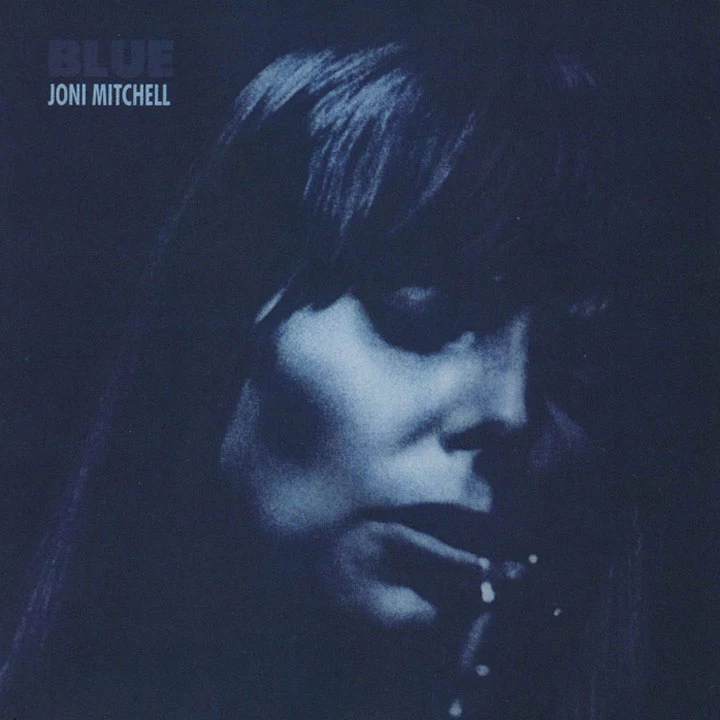
Joni Mitchell, 'Blue'
Mitchell pretty much defined the school of confessional singer-songwriters on her fourth album. 'Blue' isn't big: Most of the time Mitchell accompanies herself on only piano or acoustic guitar. But the scope of the songs is immense. Everyone from peers like Jackson Browne to artists like Taylor Swift were influenced by the monumental 'Blue.'
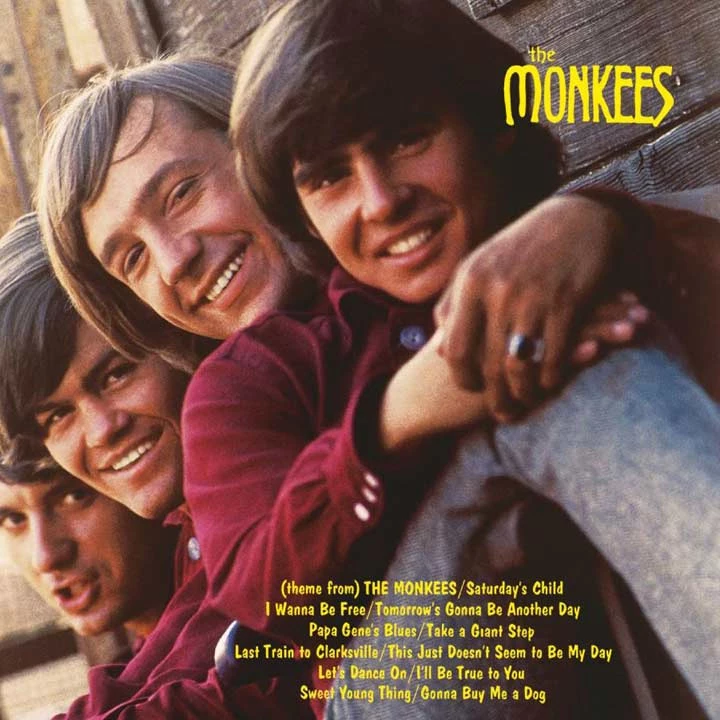
The Monkees, 'The Monkees'
The Monkees were conceived as a quick cash-in to the Beatles: four cute guys who took the zany appeal of 'A Hard Day's Night' to the small screen with their own TV show. What nobody expected was that the four guys they got were more talented, and ambitious, than they bargained for. The Monkees would stretch out more creatively on other albums, but their loose charm elevates their 1966 debut.

The Moody Blues, 'Days of Future Passed'
The Moody Blues had evolved from just another British Invasion group to something more complex by 1967. Working with the London Festival Orchestra, the band turned its second LP into a proto-prog, classical-rock masterwork. The mix of strings and rock instruments wasn't exactly new at the time, but 'Days of Future Passed' made excellent, and gorgeous, use of the bedding.
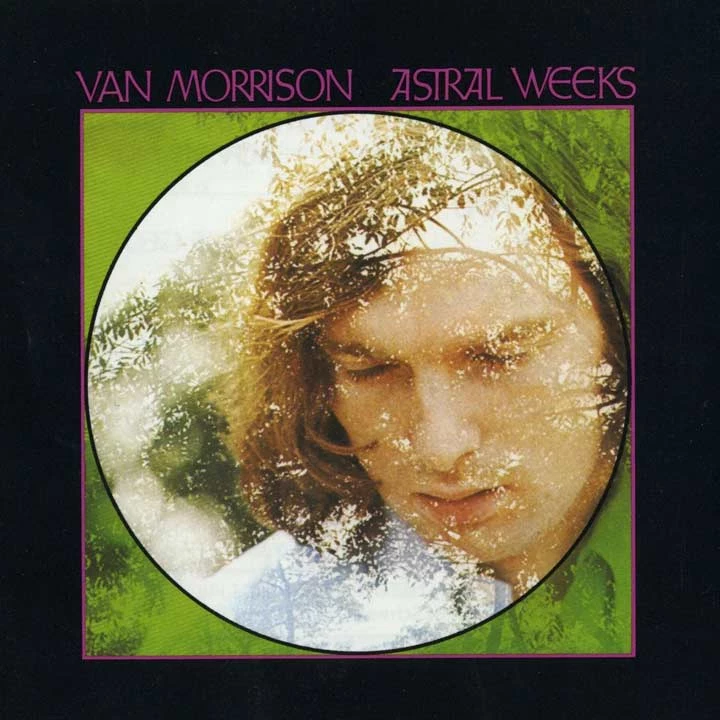
Van Morrison, 'Astral Weeks'
Van Morrison was coming off his breakthrough band (Them) and a pop hit as a solo artist ("Brown Eyed Girl") when he was rushed into the studio to record an album. Unhappy with the direction of his career, he abandoned the superstar life and retreated to the jazz-folk environment of this haunting and mesmerizing pastoral song cycle. One of the all-time greats.
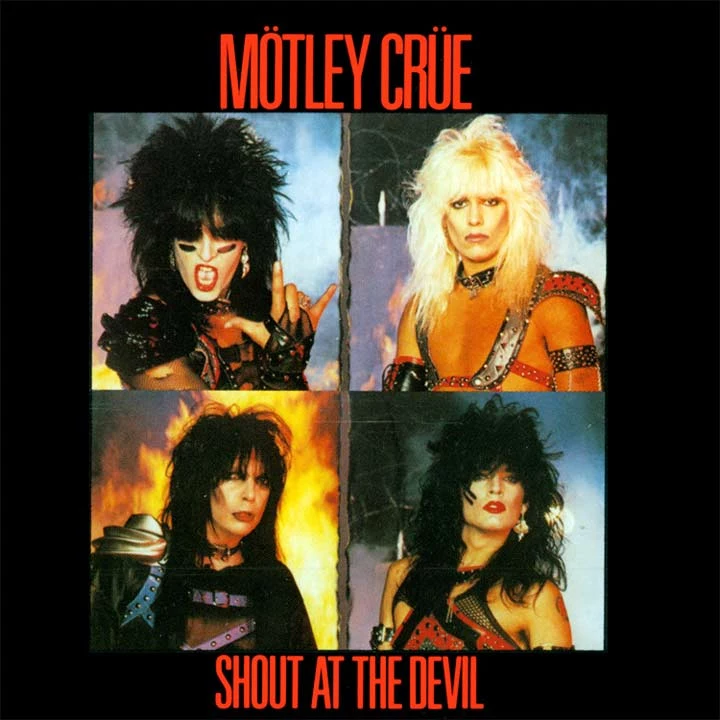
Motley Crue, 'Shout at the Devil'
Motley Crue's second album was a big push forward on their way to becoming stars and one of the '80s' biggest rock bands. A bunch of Los Angeles rockers were inspired to take up a similar approach to their songs, fashion and sleaze following the success of 'Shout at the Devil.'
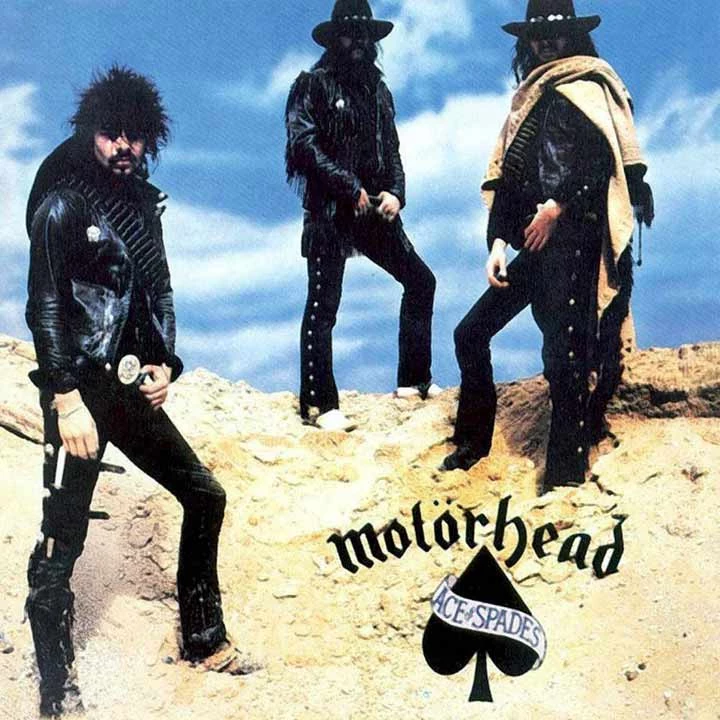
Motorhead, 'Ace of Spades'
Motorhead never deviated from their core sound, so picking one band album over another pretty much comes down to the quality of the songs. And their fourth album has their best, starting with the title track, a powerhouse rock 'n' roll number delivered in less than three minutes by the snarling Lemmy Kilmister.
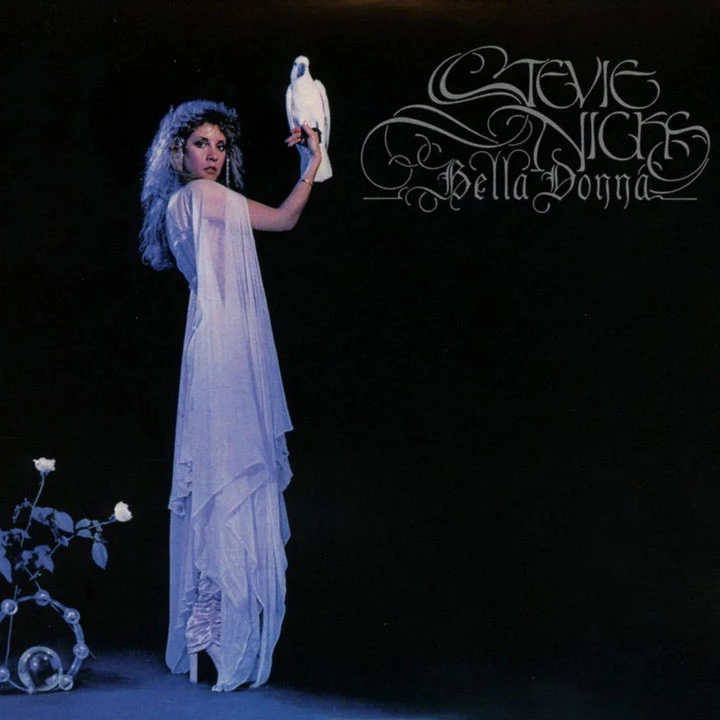
Stevie Nicks, 'Bella Donna'
By 1981, Fleetwood Mac's songwriters were stockpiling their best songs for their solo albums. Stevie Nicks' debut finally gave her the chance to branch out – something she was unable to do within Fleetwood Mac. A lifetime of love and heartbreak pours through 'Bella Donna.'
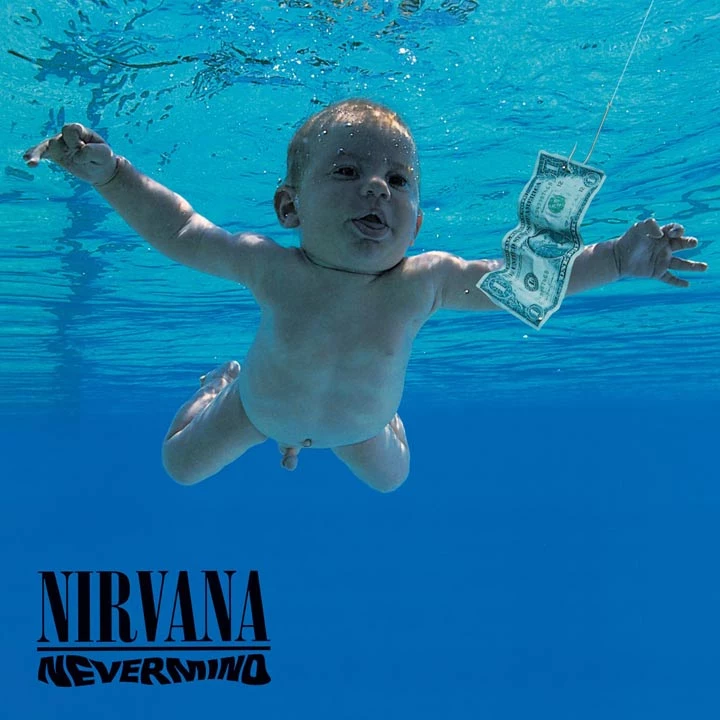
Nirvana, 'Nevermind'
'Nevermind' did many things when it arrived in 1991: It killed hair metal, it upturned the pop charts and it made alternative music an in-demand commodity. But beneath all that, Nirvana's breakthrough album is an explosive document of a punk band weaned on the classics. Few albums can claim they started a musical revolution. 'Nevermind' is one of them.
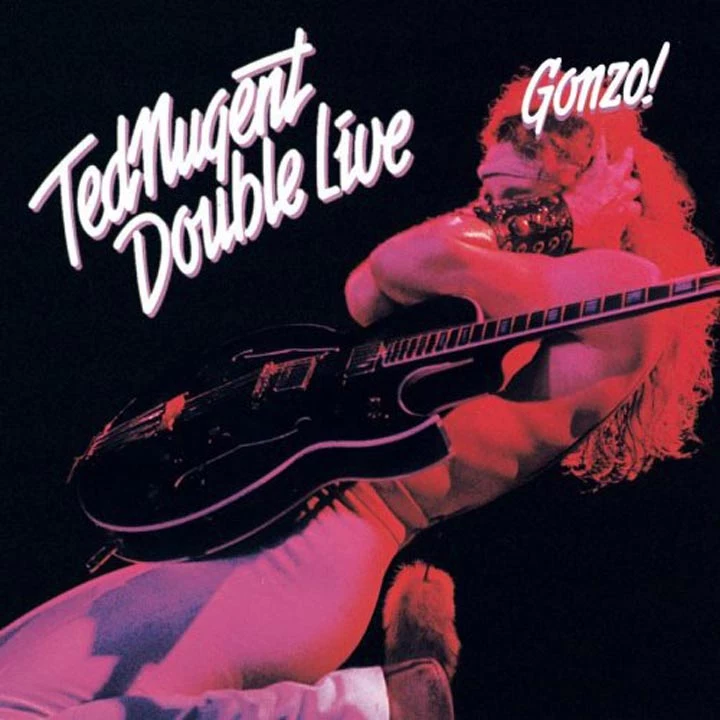
Ted Nugent, 'Double Live Gonzo'
Nugent was at the peak of his commercial appeal when he released this double live album in 1978. Definitive versions of "Stranglehold" and "Cat Scratch Fever" are here. So are Nugent's piercing solos, fired off and erupting onstage like they were finally freed from their studio confines.

Ozzy Osbourne, 'Blizzard of Ozz'
After Osbourne was booted from Black Sabbath, nobody was sure of his future. He was a gamble, for sure, with his drug and alcohol history consuming his personal life more and more. But he tapped rising guitarist Randy Rhoads as a collaborator for his debut solo album, and the partnership revived his career. 'Blizzard of Ozz' put his old bandmates' recent work to shame.
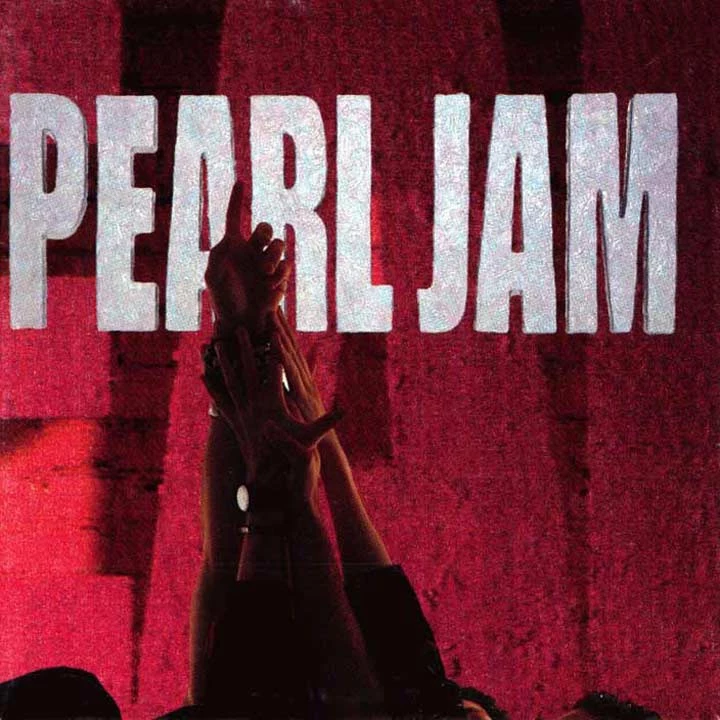
Pearl Jam, 'Ten'
Pearl Jam sounded like a superstar group from the start. Released at the beginning of the grunge era, 'Ten' remains a timeless masterpiece because they sounded like they were weaned on classic rock. They'd make tougher and more nuanced records over the years, but 'Ten' is their most visceral offering, a powerful rock 'n' roll record that doubles as a mission statement.
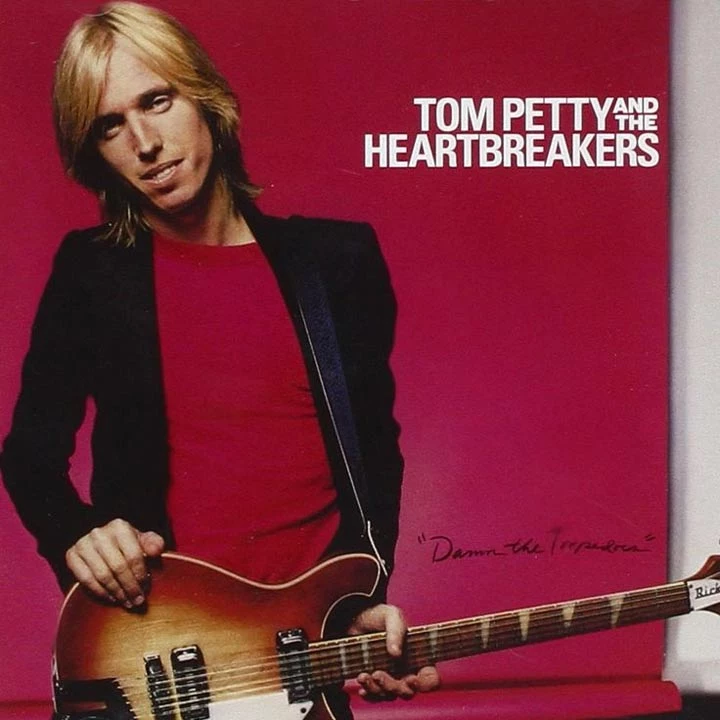
Tom Petty, 'Damn the Torpedoes'
Petty's breakthrough album plays like his most genuine slice of rock 'n' roll – probably because his two earlier albums didn't do much, and that hunger drips through nearly every single groove. 'Damn the Torpedoes' heads straight into a world where Byrds-ian folk-rock collides with heartland-sized riffs. Petty and the Heartbreakers never hit the brakes.
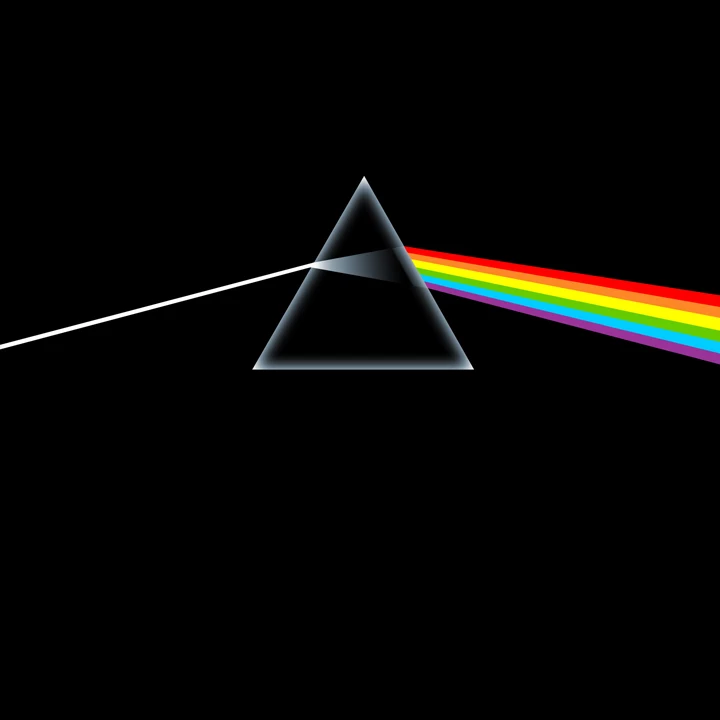
Pink Floyd, 'The Dark Side of the Moon'
Pink Floyd had already released seven albums by the time 'The Dark Side of the Moon' made them stars in 1973. They were getting to this point for years, but the epic record took off, and the band became one of the biggest in the world (and 'Dark Side' became one of rock's all-time bestselling LPs). Time hasn't dimmed the album's appeal at all.

Robert Plant, 'Mighty ReArranger'
Plant's eighth solo album is one of his most accomplished pairings of the world music he'd been exploring since his Led Zeppelin days. Two years later he made the Grammy-winning 'Raising Sand' LP, another solo achievement. But its roots lie here, on 'Mighty ReArranger''s globe-trotting mix of the sensual and spiritual.

The Police, 'Synchronicity'
The Police made only five albums during their brief career, and all of them are great. Their final one, 'Synchronicity,' isn't their leanest, but they've always had bigger aspirations than their punk roots let on. Smart, pretentious, excessive and ambitious, 'Synchronicity' is the sound of a great band taking one last stand.

Queen, 'A Night at the Opera'
Everything about Queen's fourth LP sounds big. The production. The performances. The sheer scope of the songs. You can boil it all down to the hit "Bohemian Rhapsody" if you want, but all of 'A Night at the Opera' is on this scale. Corner-filling rock 'n' roll that makes room for the kitchen sink too.

Rainbow, 'Rising'
Ritchie Blackmore fired everyone but Ronnie James Dio from the first Rainbow album, and the combination of new firepower and chops here makes it one of the guitarist's greatest achievements. Dio nearly steals the show on epic tracks like "Stargazer," but Blackmore's always awesome riffs and solos are a driving force throughout.
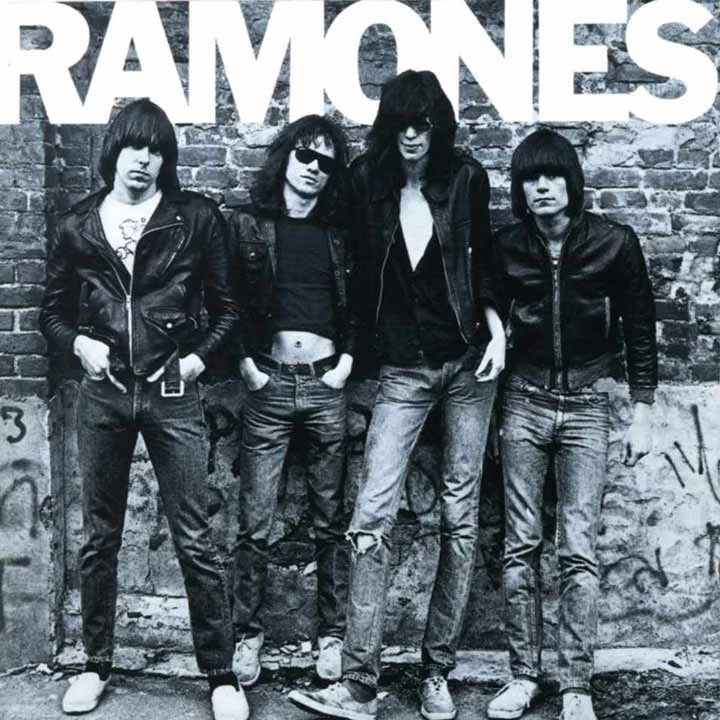
Ramones, 'Ramones'
The Ramones' debut album, from 1976, was rooted in an earlier era. Namely, '60 garage rock, girl groups and monster-movie culture. But that didn't stop them from making one of punk's most influential records. With a limited vocabulary, and a limited amount of guitar chords, they sparked a revolution of DIY rock 'n' roll.

Lou Reed, 'Transformer'
Reed left the Velvet Underground as a beaten singer-songwriter with no direction to turn. For his second solo LP, he enlisted David Bowie and adapted a new glam persona that resulted in a Top 40 hit single ("Walk on the Wild Side") and his best record. Reed would rework this formula a few times during his lengthy career, but 'Transformer' is the one with the songs to back it up.

REO Speedwagon, 'Hi Infidelity'
After a decade of non-starting LPs, REO Speedwagon finally hit the jackpot with their ninth album. It rocketed to No. 1, and its string of smash singles – led by the big power ballad "Keep on Loving You" – made them overnight stars. Polished, professional and loaded with hooks, 'Hi Infidelity' is '80s pop without the sour aftertaste.
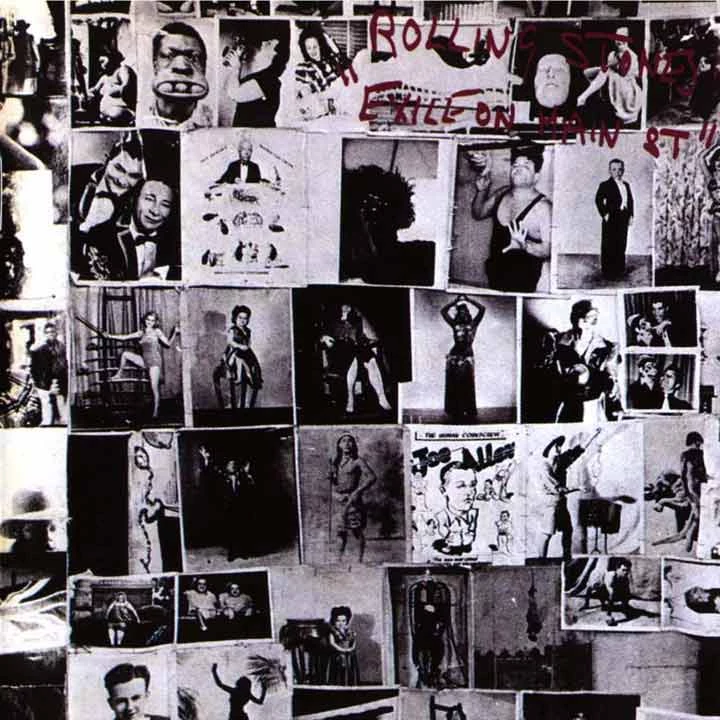
The Rolling Stones, 'Exile on Main St.'
The Rolling Stones were already the greatest rock 'n' roll band in the world (just ask them), but they took it to another level in 1972 with 'Exile on Main St.' They were at the end of one of rock's all-time greatest runs, and they went out in style – with a double-record masterpiece that's equal parts dark, despairing and druggy. The Stones sound like they're in a haze here, and they've rarely been better. Things got soggy from here on out.

Rush, 'Moving Pictures'
For their eighth album, Rush cut back on some of the loftier aspirations of their earlier work and settled in for actual songs. The result was their best and most popular album. They didn't sacrifice the heady prog that appealed to fans in the first place, but by focusing on the tight melodies and performances of songs like "Tom Sawyer" and "Limelight," the power trio opened themselves up to a whole new audience.
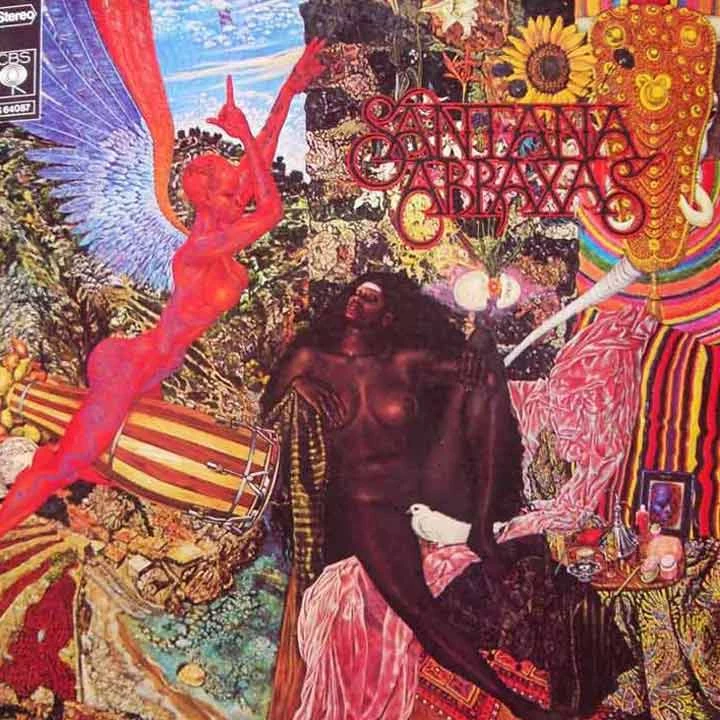
Santana, 'Abraxas'
The second album featuring Santana's greatest lineup is pretty much a repeat of their self-titled debut. Only here, everything is bigger and falls together more effortlessly. Like the first album, 'Abraxas' is a mix of vocal and instrumental tracks that lock into their grooves naturally and almost immediately.
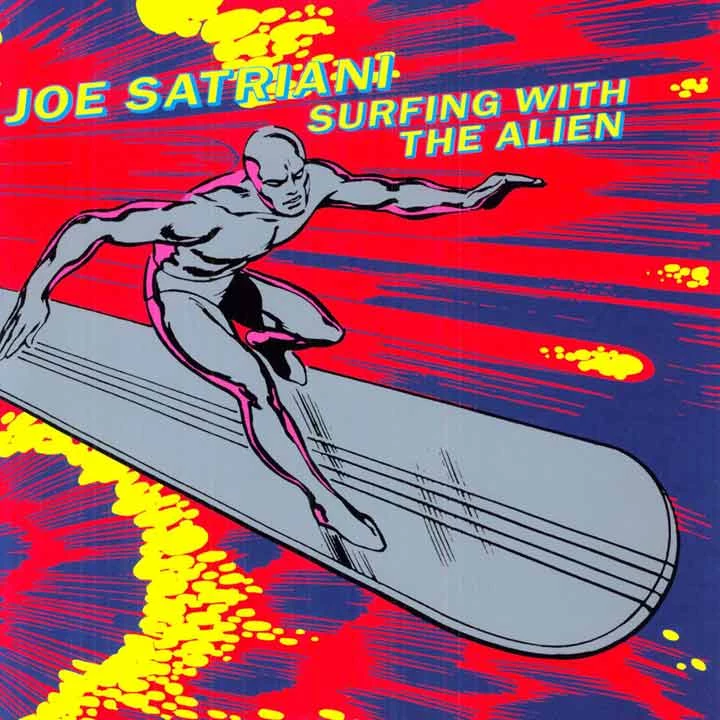
Joe Satriani, 'Surfing With the Alien'
Satriani's second album put him on the map as one of the era's greatest guitarists. His long career includes stints with little-known bands to guest spots with some of music's biggest names. 'Surfing With the Alien' is his most intense and intimate project, technically proficient but rarely in a show-off way.
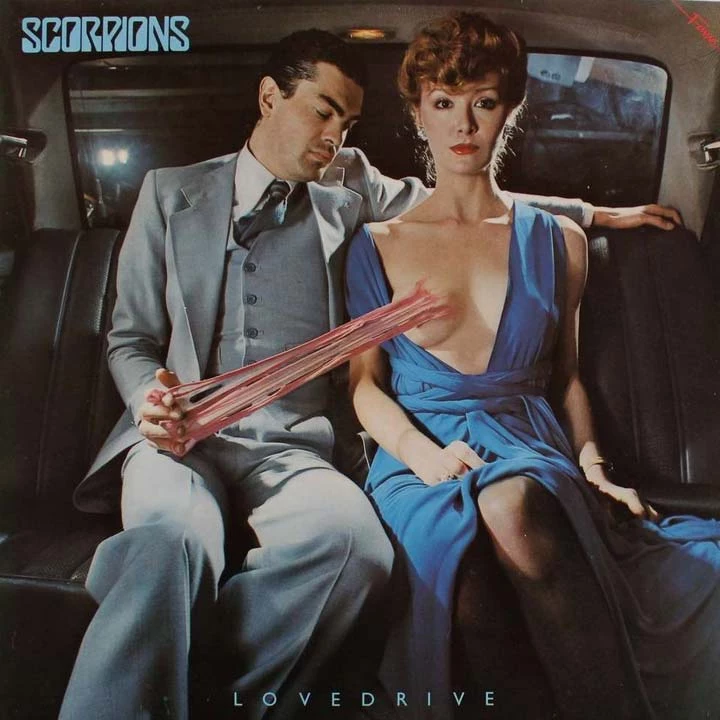
Scorpions, 'Lovedrive'
It took Scorpions six albums to finally settle on the formula that made them stars. Power ballads sit alongside riff-driven hard rock songs on 1979's 'Lovedrive,' and the back-and-forth between dueling lead guitarists Matthias Jabs and Michael Schenker set in motion a formula that helped dominate the '80s.
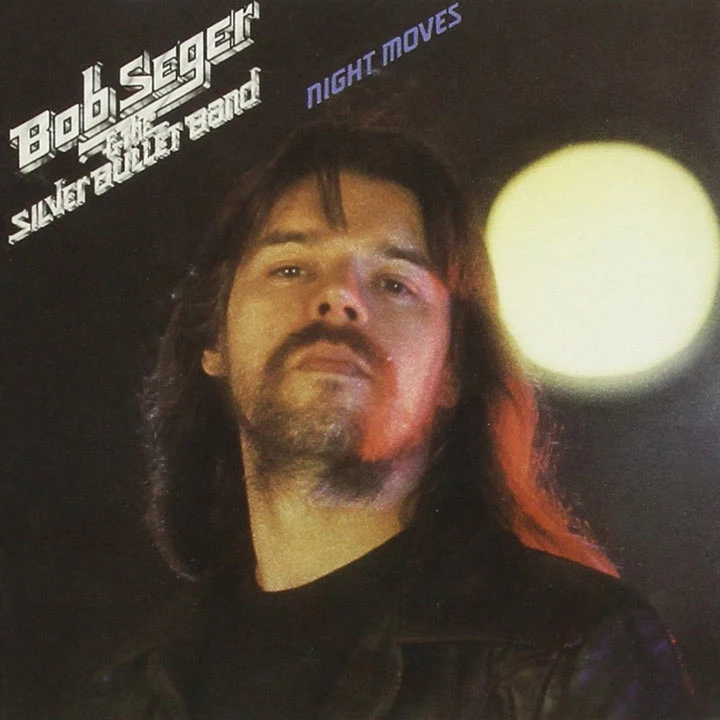
Bob Seger, 'Night Moves'
Seger had been kicking around since the '60s looking for his big break. A live album from early 1976 almost pushed him over the top, but it's his ninth studio album from later in the year that finally made him a star. Grabbing a page from Bruce Springsteen's songbook, Seger takes 'Night Moves' on a streetwise journey through back alleys and small-town hopes and dreams.

The Small Faces, 'Ogdens' Nut Gone Flake'
The Small Faces' third album arrived in 1968, just as every other rock band was getting ambitious. 'Ogdens' Nut Gone Flake' is no different. It's a concept album (well, at least Side Two is), centered on a sort of fairy tale. The narrative, like many from the era, is confusing. But the music – big, brash and way more complex than anything attempted by the group's spin-off band, Faces – is tops all the way.

Soundgarden, 'Superunknown'
Most grunge-era records sound dated and dull these days, but Soundgarden's breakthrough LP still matters. Credit the band's canny use of studio tricks and Beatlesque melodies, in addition to the blurry guitars and voice-tearing vocals. Other bands from this period would later try to copy 'Superunknown''s appeal. Most failed.
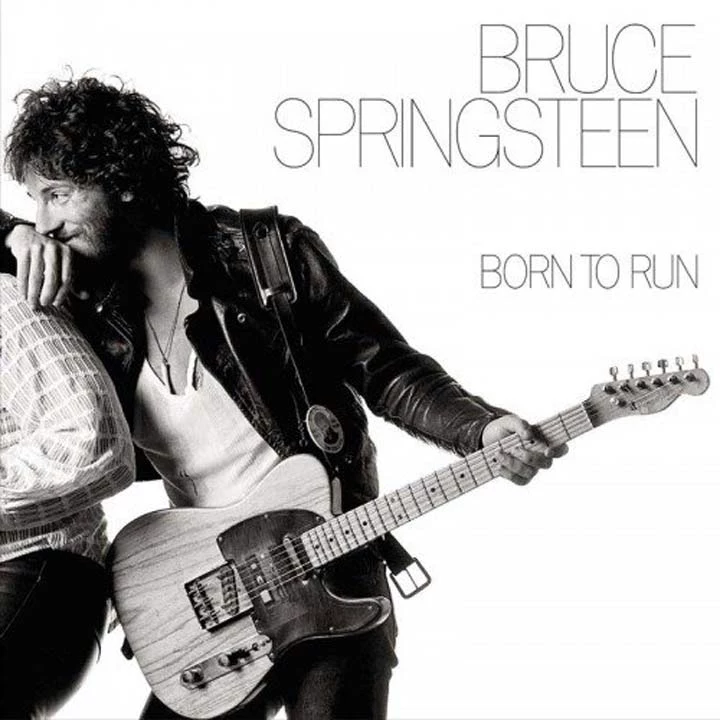
Bruce Springsteen, 'Born to Run'
Springsteen's first two albums failed to make him a star. The third one delivered big time. 'Born to Run' is the sound of an artist finding his voice in 40 flawless minutes. You can hear it from the despair in the opening "Thunder Road" to the closing mini-opera "Jungleland." It turned Springsteen's life around and, in a way, the seriousness of music in the mid '70s. A game-changer all the way.
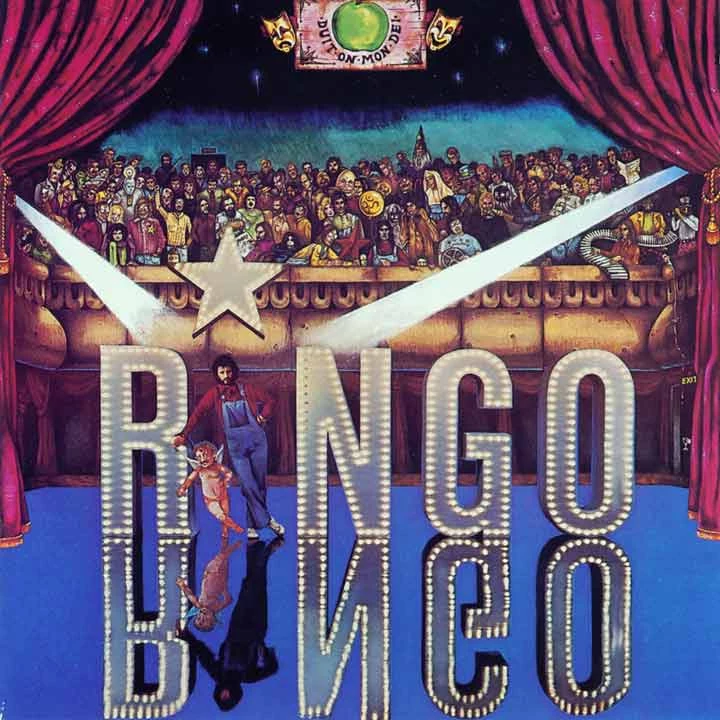
Ringo Starr, 'Ringo'
Ringo Starr's third solo album is the closest the Beatles got to working together since their breakup. All three of Starr's bandmates are here in one form or another (George Harrison helped him write "Photograph," a No. 1 hit). The drummer usually gets the fuzzy end of the stick; on 'Ringo' he proves why he was one-fourth of the greatest group ever.

Steely Dan, 'Aja'
Steely Dan's records were pristine to the point where you could eat off their glistening surfaces. They were never as sharp or as focused as they are on 'Aja,' their 1977 hit that balances cool jazz with timeless pop appeal. Band leaders Donald Fagen and Walter Becker have been criticized for their coldness. But on 'Aja,' they reveal a warm, beating heart beneath that steely exterior.

Rod Stewart, 'Every Picture Tells a Story'
Rod Stewart was doing double duty with the Faces at the time of 1971's 'Every Picture Tells a Story,' so his bandmates' contributions boost the loose, boozy vibe. As the decade progressed, Stewart would try on a few other hats – soft-rock lothario, swarthy disco guy – but he's at his best when he puts his throaty voice behind pure rock 'n' roll.
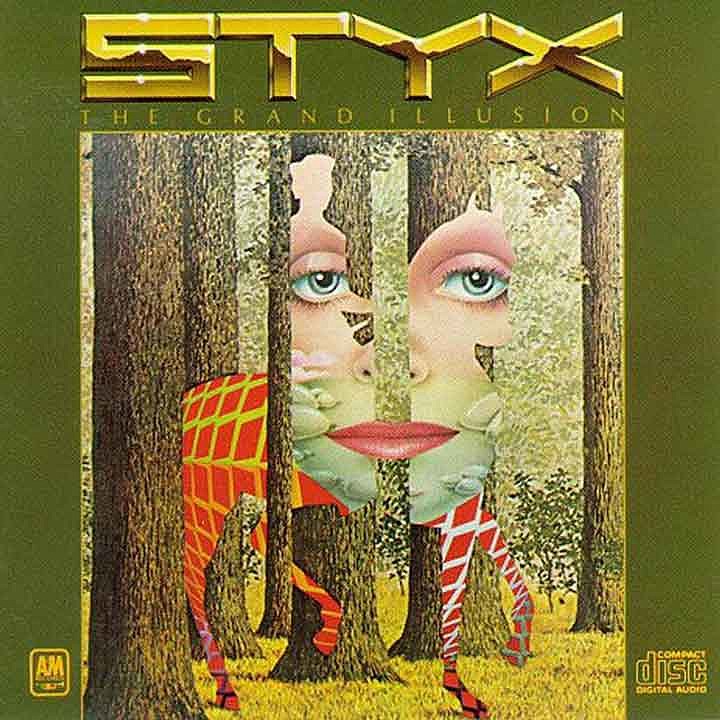
Styx , 'Grand Illusion'
Like many of their U.S. prog peers, Styx had been around for years before they realized that scaling down was a key to commercial success. Their seventh album broke the band, with radio hits "Come Sail Away" and "Fooling Yourself" balancing with the group's prog past on tracks like the title song.

Supertramp, 'Breakfast in America'
Supertramp's sixth album made them belated stars, when three of its songs reached the Top 40 and the LP became a No. 1 smash. It helped that the songs were the most tuneful of the band's career, and the sterling production fit the tracks' grand style.
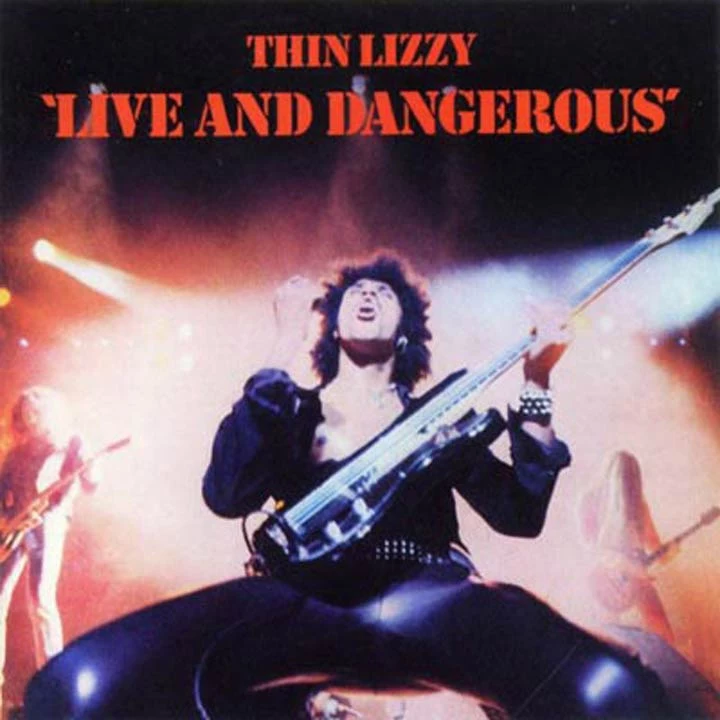
Thin Lizzy, 'Live and Dangerous'
Thin Lizzy's discography is wobbly. For every great record like 'Jailbreak,' there's one or two 'Chinatown's. The double 'Live and Dangerous,' released in 1978, is all classic songs, so it may be the best sampling of their career. It's certainly one of the best concert records of the decade.

Toto, 'IV'
Everyone had pretty much written off Toto after their dud third album. But they returned in 1982 bigger and better. The hits are here – "Rosanna" and "Africa" make great bookends – but most everything in between works too. A studio-savvy band at its most polished and assured.

Pete Townshend, 'Empty Glass'
Townshend's first real solo album (following other hodgepodge records, like a collection of Who demos) is part a break from the past and a look toward the future. In 1980, the Who were considered dinosaurs by punk's new guard. 'Empty Glass' is a reaction to that, and Townshend isn't disagreeable. This is acknowledgment that something new always comes along.

Traffic, 'John Barleycorn Must Die'
Steve Winwood resurrected the broken-up Traffic during the recording of a solo album in 1970, and the music here, on their fourth LP, serves as the strongest link between their folkiest and proggiest moments. They also drift into jazz territory on 'John Barleycorn Must Die,' checking in with a semi concept album propelled by Traffic's best performances.
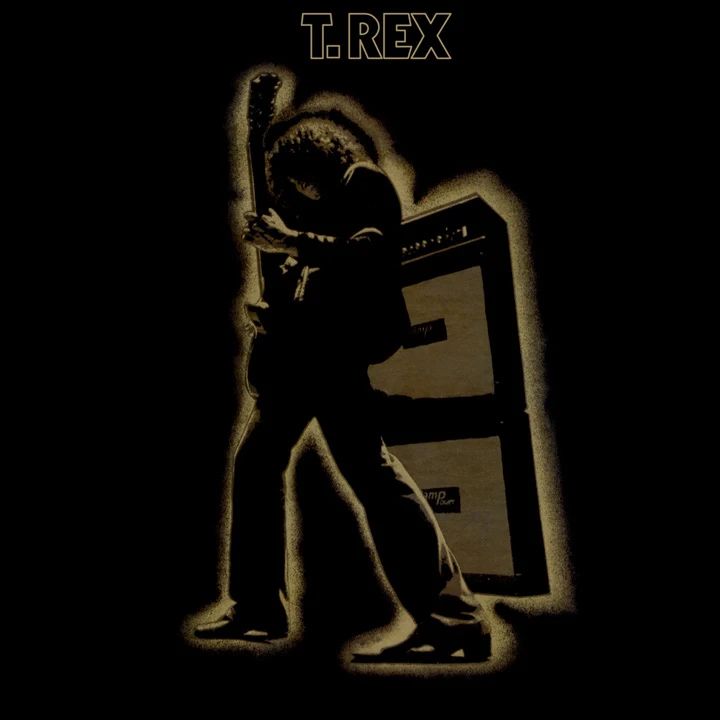
T. Rex, 'Electric Warrior'
David Bowie got more attention, but T. Rex's 1971 album (and their sixth overall, after some failed attempts at folk music) is the granddaddy of glam. Marc Bolan is all sweat and sex as he sways through some of his band's most defining songs, including the hit "Bang a Gong (Get It On)." Every glam band owes this record a round of glitter.

Twisted Sister, 'Stay Hungry'
Twisted Sister's third album includes their two biggest hits – "We're Not Gonna Take It" and "I Wanna Rock" – so this is a no-brainer. Frontman Dee Snider became a rock 'n' roll hero a year after 'Stay Hungry''s release in 1984 when he testified at the Senate's PMRC hearing regarding music censorship. 'Stay Hungry' is the reason he got there.

U2, 'The Joshua Tree'
U2 had been inching toward this moment since their debut album. But on 1987's 'The Joshua Tree,' their fifth LP, they got widescreen big, taking on huge issues (drug addiction, death, depression) with a musical landscape that was massive enough to contain it. The band has reinvented itself several times since, but this will always be the classic U2 sound.

Van Halen, 'Van Halen'
Van Halen would never be looser and more fun that they were on their self-titled 1978 debut album. They sound hungry, but not so hungry that they can't play around with their music. From David Lee Roth's horn-dog asides to Eddie Van Halen's sizzling guitar pyrotechnics, Van Halen kicked off a whole new era of hard rock.
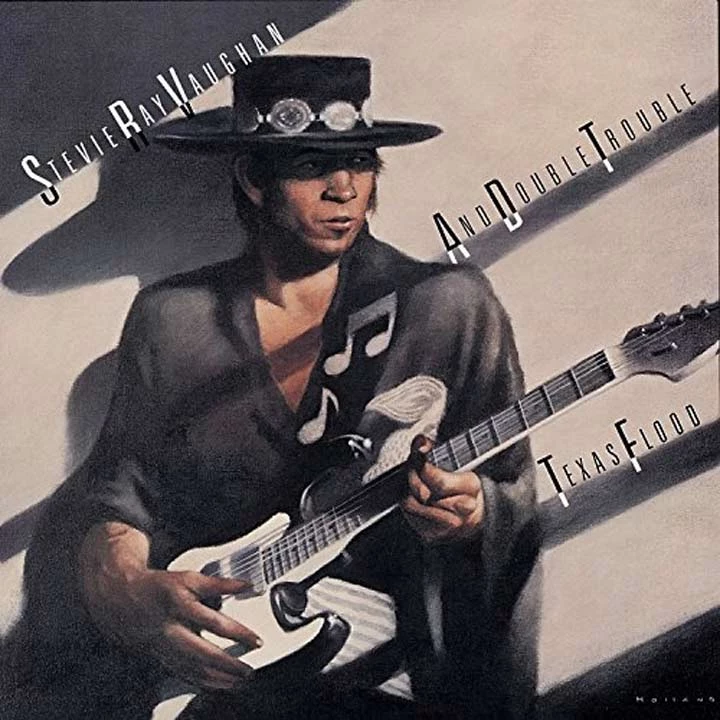
Stevie Ray Vaughan, 'Texas Flood'
Vaughan's first album is his best, a combination of Hendrix-style guitar heroics and slippery blues. Vaughan wasn't an original so much as an expert imitator, someone who could bend notes to places most guitar slingers wouldn't even dream of. His band Double Trouble cook too.

The Velvet Underground, 'The Velvet Underground & Nico'
Nothing else sounded like 'The Velvet Underground & Nico' when it came out in 1967, and there's not much that sounds like it today. Noisy art-rock about transvestites, drug abuse and S&M weren't exactly Summer of Love staples. Lou Reed led the band for four chaotic albums that touched on other moods and styles. This is their wildest and most influential.

Joe Walsh, 'But Seriously, Folks ... '
Walsh was flying high with the Eagles when he released his fourth solo album, a smart-ass look at what fame and fortune bring. "Life's Been Good" is the ringer here, a summation of everything that came before it. But throughout the record, Walsh playfully pushes his talking guitar and nasally voice to their hookiest breaking points.

The Who, 'Who's Next'
The Who were more ambitious at times (see 'Tommy' and 'Quadrophenia') and more raw ('My Generation'). But 'Who's Next' represents everything great about them in less than 45 glorious minutes: rock-god swagger, cutting-edge musical explorations, super-heavy playing and larynx-shredding screams that can move mountains. The definitive Who album.

The Yardbirds, 'Roger the Engineer'
The Yardbirds had evolved away from the strictly blues era that marked their Eric Clapton days and were now heading into more experimental ground with second guitarist Jeff Beck. 'Roger the Engineer,' the Yardbirds' only album entirely written by the band, remains their definitive group statement. They weren't through with the superstar players, however: Jimmy Page replaced Beck not long after this album's release.

Yes, 'Close to the Edge'
It doesn't get more prog than this: Three songs, none less than nine minutes. Plus, two of those tracks are split into four movements each. Pretentious? Oh yeah. But when the songs are this good – "Close to the Edge," "And You and I" and "Siberian Khatru," that's it! – we have no complaints.

Neil Young, 'After the Gold Rush'
In a way, 'After the Gold Rush' is the archetypal Neil Young album: recorded in various spots with various backing musicians, including material left over or abandoned from earlier projects and a mix of electric and acoustic numbers. Crazy Horse even make an appearance. But what makes 1970's 'After the Gold Rush' Young's greatest work is the combination of songs and timing: It sounds like the end of the '60s giving way to another turbulent period.
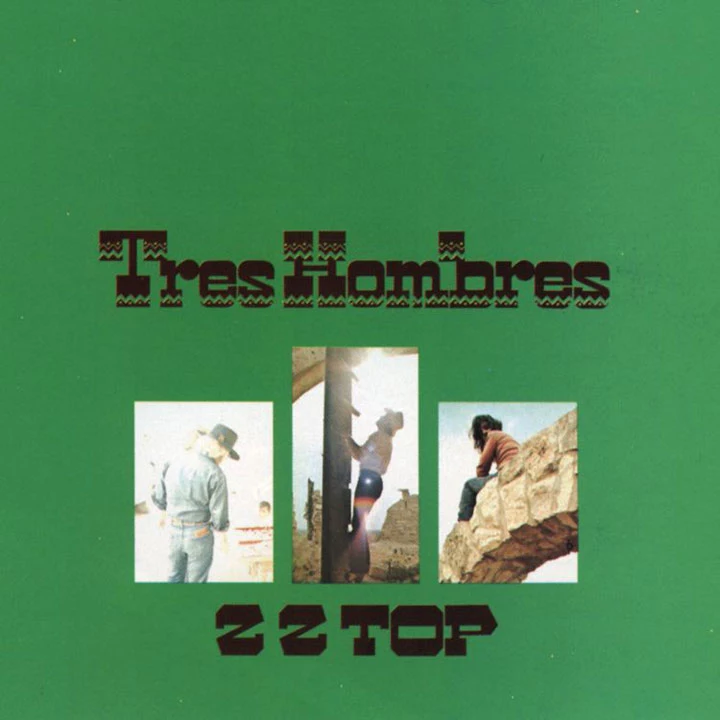
ZZ Top, 'Tres Hombres'
Before the fuzzy guitars and the MTV hits, ZZ Top checked in with their strongest album, a no-frills collection of sharp boogie and dusty blues. Some of their best songs are here ("La Grange," "Beer Drinkers & Hell Raisers"). It set them up for the massive success they'd have 10 years later.